
China Accuses Foreign Spies of Online Disinformation Campaign Against Revolutionary Heroes
China's Ministry of Security has accused foreign intelligence services of defaming the country's historical revolutionary figures through internet platforms. According to the ministry, these agencies are overwhelming online forums with distorted and fabricated versions of history.
China's primary intelligence agency has accused foreign operatives of spreading remarks on social media platforms that allegedly misrepresent historical events and defame heroes of the revolution.
On Monday, the Ministry of State Security posted on social media that foreign intelligence services are overwhelming online forums with unauthorized and counterfeit narratives about our nation’s legendary figures. They aim to undermine and defame our historical culture and heroic figures, diminishing public respect and identification with our historical heritage.
The message on the ministry's official WeChat account cautioned that "certain foreign intelligence services" are "extracting national secrets, destabilizing the internet environment, and posing risks to the country's security."
The ministry reported that international espionage agents, masquerading as enthusiasts of politics, military, economic, or scientific and technological subjects, attempted to extract information through engagements with users on social media platforms.
The statement revealed that authorities found out spies were employing either "manual screening or algorithmic capture" techniques to coax individuals into sharing sensitive details like "parameters, serial numbers, and developers of our research equipment" in the comment sections of a video discussing a "specific Chinese technology project."
The ministry also noted that the spies enlisted trolls or deployed bots to "carelessly create and disseminate fabricated claims that undermine our government and its policies."
The department has stepped up its presence on social media, issuing alerts about the dangers associated with foreigners.
China
Driving into the Future: Unpacking the Dynamics of the World’s Largest Automotive Market – From EVs and NEVs to Strategic Alliances

TL;DR: Recognized as the top and largest automotive market globally, China is leading in Electric Vehicles (EVs) and New Energy Vehicles (NEVs) innovation, thanks to government incentives and a focus on reducing environmental concerns. The market sees intense competition, with domestic car brands quickly adapting to technological advancements and consumer preferences, challenging foreign automakers. Regulatory landscape requirements for joint ventures enable foreign entities to navigate the market while leveraging local expertise. Strategic partnerships, coupled with investments in future technologies like AI, underscore China's commitment to sustainable automotive development amidst its urbanization and growing economy, reshaping the global landscape of market competition in favor of environmentally friendly vehicles.
In the heart of the global automotive industry's evolution, the China automotive market stands as the top contender, a beacon of growth and innovation. As the largest automotive market in the world, China's blend of a growing economy, rapid urbanization, and an expanding middle class has created an unparalleled environment for both domestic car brands and foreign automakers. The drive towards Electric Vehicles (EVs) and New Energy Vehicles (NEVs) is not just a trend but a significant pivot, fueled by environmental concerns and robust government incentives. This pivot has placed China at the forefront of the green revolution in the automotive sector, making it a hotbed for technological advancements and strategic partnerships.
The competitive landscape of this market is as dynamic as it is challenging, with joint ventures between foreign automakers and local Chinese companies becoming a strategic maneuver to navigate the complex regulatory landscape and tap into the vast consumer base. Consumer preferences in China are increasingly leaning towards sustainability and innovation, further pushing the envelope for EVs and NEVs. The synergy of market competition, strategic partnerships, and a keen understanding of the regulatory terrain forms the backbone of success in China's automotive market.
As we delve deeper into the intricacies of this market in the following sections, we will explore how the largest automotive market thrives on the pillars of EVs, NEVs, and strategic alliances. The landscape is a testament to China's position as a key player in shaping the future of mobility, setting the pace for global trends in environmental sustainability and technological breakthroughs. Join us as we navigate through the world's top terrain, where the fusion of government incentives, consumer preferences, and environmental concerns dictate the rhythm of progress in the automotive industry.
1. "Navigating the World's Top Terrain: How the Largest Automotive Market Thrives on EVs, NEVs, and Strategic Alliances"
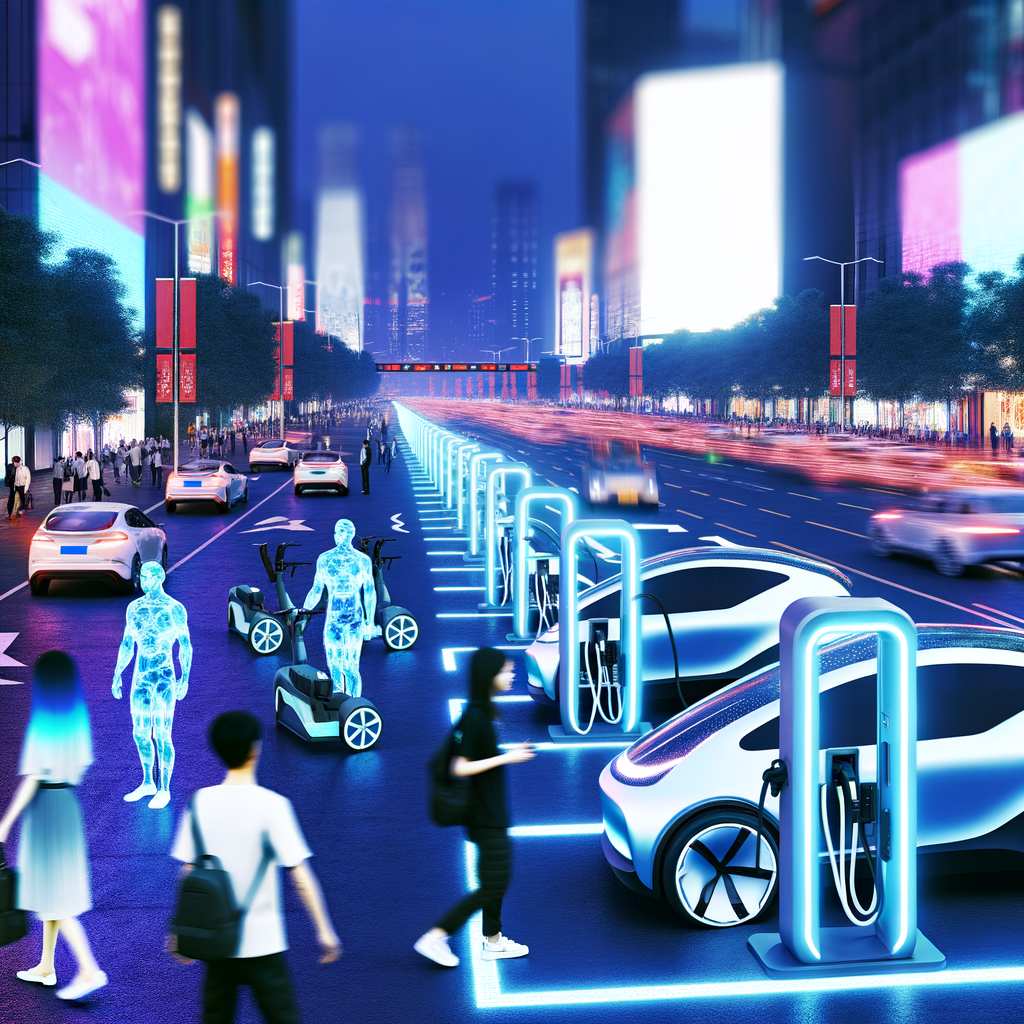
In the race to dominate the global automotive scene, the China automotive market sits at the pinnacle as the world's top and largest automotive market. This dynamic marketplace is the epicenter of innovation and growth, particularly in the domains of Electric Vehicles (EVs) and New Energy Vehicles (NEVs). The surge in demand for these environmentally friendly alternatives is largely fueled by the Chinese government's incentives aimed at reducing carbon emissions and combating the environmental concerns exacerbated by rapid urbanization and a growing economy.
Navigating the regulatory landscape in China requires finesse and strategic maneuvering, especially for foreign automakers looking to tap into this lucrative market. Joint ventures have emerged as a vital strategy for these international entities, allowing them to forge alliances with domestic car brands. These partnerships are not just a means to comply with local regulations but also a strategic move to harness local expertise and navigate consumer preferences effectively.
The Chinese consumer's growing appetite for EVs and NEVs is reshaping the market competition. Domestic brands, once seen as underdogs, are now emerging as fierce competitors, thanks in part to their quicker adaptation to technological advancements and a deeper understanding of local market dynamics. This shift is compelling foreign automakers to recalibrate their strategies, often resulting in innovative collaborations and strategic partnerships that aim to blend the best of both worlds – international quality with local market insight.
The government's role in sculpting the market cannot be overstated. Through a combination of incentives for consumers and mandates for manufacturers, China is aggressively pushing the envelope in the adoption of cleaner, more sustainable automotive technologies. This approach not only aligns with global environmental goals but also positions China as a leader in the NEV market, setting the stage for a new era of automotive innovation.
Moreover, the focus on technological advancements is propelling the Chinese automotive market into the future. With a keen eye on the horizon, China is investing in cutting-edge technologies such as autonomous driving, connectivity, and artificial intelligence (AI), ensuring that the automotive industry remains at the forefront of technological evolution.
In conclusion, the China automotive market's dominance is underpinned by a complex interplay of factors including a burgeoning economy, urbanization, and consumer preferences, all woven together by strategic partnerships and a supportive regulatory framework. As the market continues to evolve, it offers a unique kaleidoscope of opportunities and challenges, making it a focal point for innovation, competition, and growth in the global automotive industry.
In conclusion, the status of China as the world's top and largest automotive market is a testament to its rapidly growing economy, expanding urbanization, and the increasing affluence of its burgeoning middle class. This market, characterized by a strong demand for both domestic car brands and foreign automakers, has shown a pronounced shift towards electric vehicles (EVs) and new energy vehicles (NEVs), driven by environmental concerns and substantial government incentives. The intricate regulatory landscape of China necessitates strategic partnerships and joint ventures for foreign brands aiming to tap into this lucrative market. These alliances, along with a deep understanding of consumer preferences, market competition, and technological advancements, are crucial for success in navigating this dynamic and highly competitive environment.
The emphasis on EVs and NEVs highlights China's commitment to combating environmental challenges while advancing its technological prowess in the global automotive industry. As the market continues to evolve, driven by government policies, global economic trends, and the ever-changing preferences of consumers, the importance of innovation and adaptation cannot be overstated. For companies vying for a significant share of the world's largest automotive market, the ability to anticipate changes and craft strategic responses will remain paramount. In this vibrant market, the future of mobility is being shaped, with China leading the way in the transition towards a more sustainable and technologically advanced automotive landscape.
China
Driving Dynamics: Exploring the Growth and Challenges in the World’s Largest Automotive Market
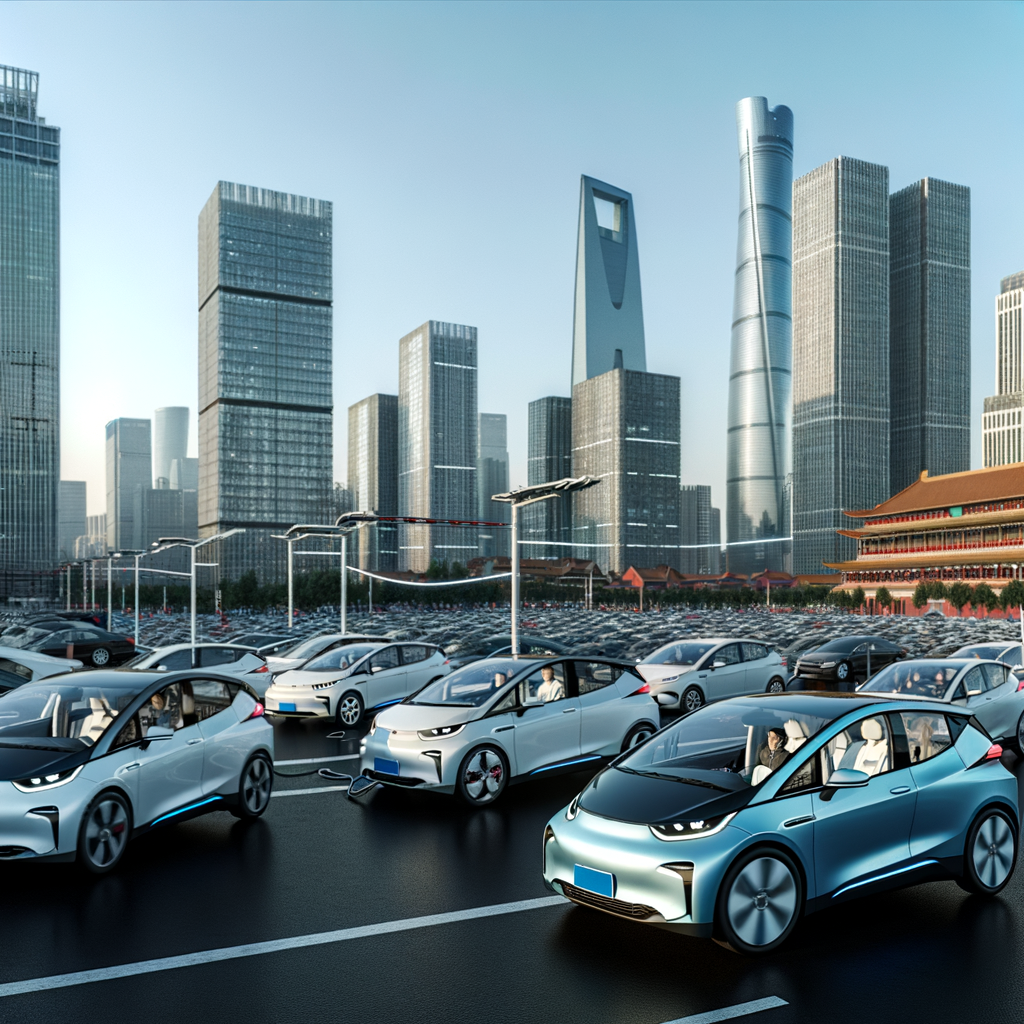
China, the top Largest Automotive Market, is experiencing a pivotal shift towards Electric Vehicles (EVs) and New Energy Vehicles (NEVs) driven by urbanization, a growing economy, and environmental concerns. The move is heavily supported by government incentives, aiming to make China a leader in the electric vehicle revolution. The demand for EVs and NEVs is rising among an urbanizing population and an emerging middle class, changing consumer preferences. Foreign automakers face a complex regulatory landscape, leading to joint ventures with domestic car brands to navigate market entry and adhere to regulations, while also sharing technological advancements and market insights. The market competition is intense, with both domestic and international players vying for dominance, underscoring the importance of understanding the regulatory landscape, consumer preferences, and technological trends. Success in this market requires strategic partnerships and a keen insight into market dynamics, with government policies on NEVs, joint ventures, and market competition playing a crucial role in shaping business strategies for both foreign automakers and domestic car brands.
In the fast-paced world of the automotive industry, all roads seem to lead to one undeniable epicenter of growth and innovation: China. Holding the title of the Largest Automotive Market globally, China presents an unparalleled landscape of opportunities and challenges for both domestic car brands and foreign automakers alike. At the heart of this burgeoning market are the twin pillars of Electric Vehicles (EVs) and New Energy Vehicles (NEVs), propelled forward by a combination of government incentives, environmental concerns, and a rapidly urbanizing society hungry for sustainable and advanced mobility solutions. This comprehensive exploration delves into the intricate tapestry of the Chinese automotive sector, characterized by its dynamic market competition, evolving consumer preferences, and the strategic partnerships that are shaping the future of transportation. From the bustling streets of Beijing to the expansive roads of rural China, we uncover the forces driving the world's top automotive market—from the surge in EV adoption and the innovative leap in technological advancements to the complex regulatory landscape that foreign and domestic players must navigate. Join us as we embark on a journey through the China automotive market, where the fusion of a growing economy, urbanization, and strategic foresight are steering the global industry towards new horizons.
1. "Navigating the Road Ahead: Understanding the Largest Automotive Market's Landscape from EV Growth to Strategic Partnerships"

Navigating the expansive terrain of the world's top Largest Automotive Market, China's dynamic ecosystem presents a fascinating journey from the traditional combustion engine to the forefront of Electric Vehicles (EVs) and New Energy Vehicles (NEVs). This seismic shift is propelled by a combination of government incentives, a growing economy, and heightened environmental concerns, all playing pivotal roles in shaping the future of mobility within the region.
At the heart of this transformation is the surge in demand for EVs and NEVs, driven by a rapidly urbanizing population and an emerging middle class with evolving consumer preferences. The Chinese government, recognizing the dual benefits of reducing pollution and leading in a critical technological domain, has rolled out substantial incentives to encourage both manufacturers and consumers to pivot towards greener alternatives. This strategic move not only aligns with global environmental goals but also positions China as a leader in the electric vehicle revolution.
Foreign automakers, eyeing the vast opportunities within this burgeoning market, often find themselves navigating a complex regulatory landscape that necessitates forming joint ventures with local Chinese companies. These strategic partnerships serve as a key to unlocking access to the vast consumer base, allowing for a symbiotic exchange of technological advancements and market expertise. By collaborating with domestic car brands, foreign entities can adhere to local regulations while leveraging their global insights to cater to Chinese consumer preferences.
The competition within the Chinese automotive market is fierce, with domestic and international players vying for dominance. Technological advancements play a critical role in this arena, as companies innovate to meet the demands of an increasingly tech-savvy population. From connected cars to AI-driven safety features, the race to lead in technology is as intense as the market competition itself.
Understanding the regulatory landscape is crucial for any player aiming to succeed in China's automotive market. The government's role cannot be understated, as policies around NEVs, joint ventures, and market entry have direct implications on business strategies. Adapting to these regulations, while staying ahead of technological trends, is paramount for both domestic and foreign automakers.
In conclusion, the road ahead in China's Largest Automotive Market is both challenging and exciting. From the growth of electric vehicles to the formation of strategic partnerships, the landscape is continuously evolving. Success in this market requires a deep understanding of the regulatory environment, consumer preferences, and technological advancements. For automakers willing to navigate this complex terrain, the rewards can be substantial, positioning them at the forefront of the future of transportation.
In conclusion, China's position as the largest automotive market in the world is a testament to its rapidly growing economy, increasing urbanization, and the expanding middle class, all of which fuel a high demand for both domestic car brands and foreign automakers. The surge in electric vehicles (EVs) and new energy vehicles (NEVs) underscores the nation's commitment to innovation and environmental sustainability, propelled by significant government incentives. The landscape of this market is complex and dynamic, shaped by a unique regulatory landscape that necessitates strategic partnerships through joint ventures for foreign brands aiming to penetrate the vast consumer base.
Understanding the preferences of Chinese consumers, who are increasingly leaning towards technologically advanced, environmentally friendly vehicles, is crucial for success in this competitive environment. The emphasis on EVs and NEVs, paired with China's leading role in the global automotive industry, highlights the significance of staying ahead in technological advancements and adapting to the evolving regulatory and market conditions.
For companies eyeing the lucrative opportunities within the largest automotive market, the path forward involves navigating the intricacies of market competition, consumer preferences, and government policies. Success hinges on leveraging strategic partnerships, understanding the critical role of urbanization and the growing economy, and aligning with environmental concerns and the shift towards new energy solutions. As the automotive landscape continues to evolve, so too will the strategies of those looking to make their mark in China's dynamic and ever-expanding market.
China
Driving Success in the East: Mastering China’s Top Automotive Market through EV Innovation, Strategic Partnerships, and Adaptation to Local Demands
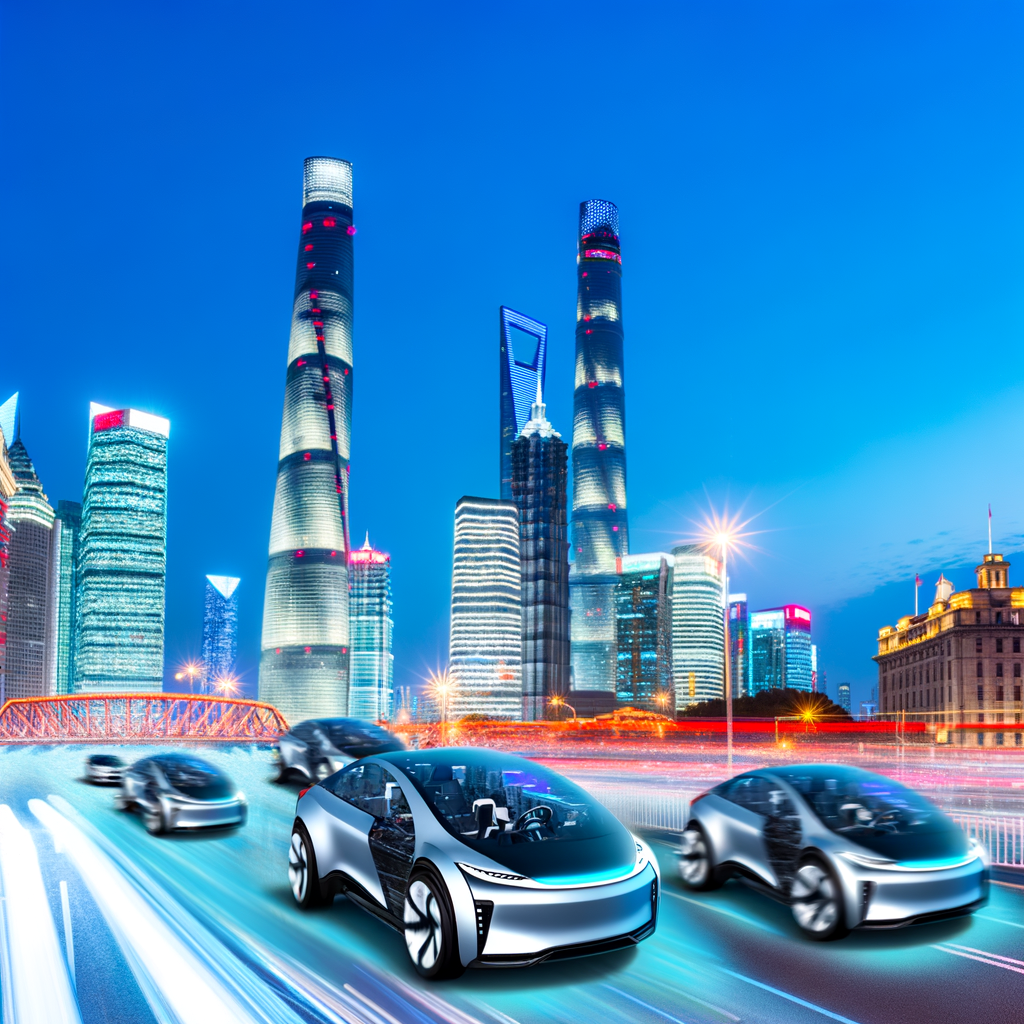
TL;DR: China, the world's largest automotive market, offers significant opportunities and challenges for both foreign automakers and domestic car brands, especially in the Electric Vehicles (EVs) and New Energy Vehicles (NEVs) sector. Success in this rapidly urbanizing and growing economy, with its strong environmental concerns, demands a deep understanding of the regulatory landscape, consumer preferences, and technological advancements. Foreign players must navigate market competition through strategic partnerships and joint ventures with local companies, leveraging government incentives and adapting to the unique demands of Chinese consumers to thrive in this dynamic market.
In the realm of global commerce, the automotive sector stands as a titan of industry, and at its heart lies the China automotive market, a behemoth unmatched in both scale and velocity. As the largest automotive market in the world, China presents an intriguing landscape of innovation, competition, and strategic maneuvering, driven by its rapidly growing economy, expanding urbanization, and an ever-evolving middle class with a voracious appetite for mobility. This market's distinct blend of high demand for both domestic car brands and foreign automakers, alongside a pronounced emphasis on Electric Vehicles (EVs) and New Energy Vehicles (NEVs), sets the stage for a dynamic battleground where technological advancements meet environmental stewardship.
With government incentives fueling the push towards greener alternatives, and environmental concerns steering public sentiment, China is at the forefront of the EV revolution, making it a critical arena for both domestic and international players aiming to capitalize on the burgeoning demand for cleaner, more sustainable modes of transportation. The complex regulatory landscape further adds a layer of intrigue, compelling foreign automakers to enter into strategic joint ventures with local Chinese companies as a gateway to accessing this vast and lucrative consumer base.
This article delves deep into the heart of the China automotive market, exploring how top players navigate the challenges and opportunities presented by the world's largest automotive arena. From the intricacies of the regulatory landscape to the shifting consumer preferences, the influence of government incentives, and the pivotal role of strategic partnerships, we untangle the complex web that defines this market. With a particular focus on the rise of EVs and NEVs amidst intensifying market competition and technological advancements, this exploration offers a comprehensive understanding of a market that is not only shaping the future of mobility in China but also setting the pace for the global automotive industry.
1. "Navigating the World's Largest Automotive Market: China's Blend of EV Innovation and Strategic Partnerships"
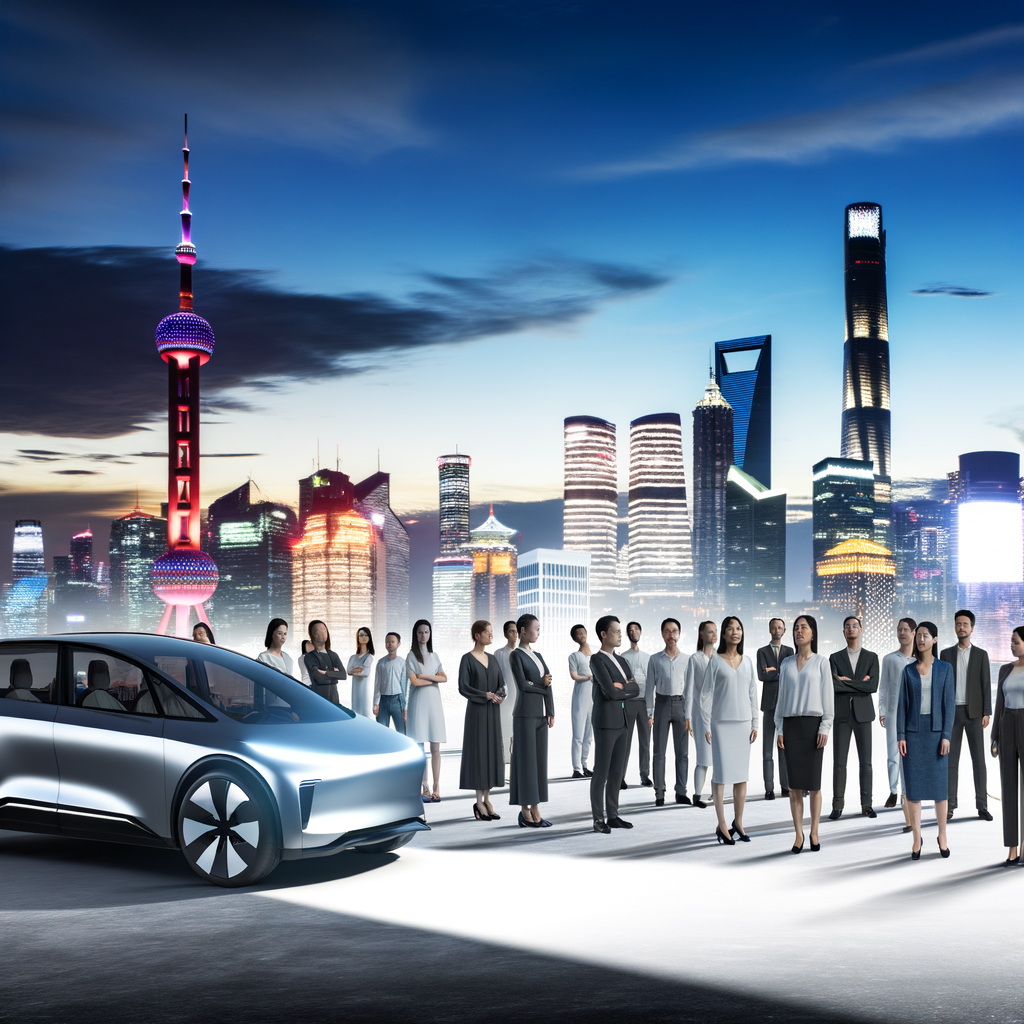
Navigating the complex and vibrant terrain of the world's Largest Automotive Market, China, presents a unique blend of challenges and opportunities for both domestic and foreign automakers. At the heart of its rapid expansion lies a growing economy, accelerated urbanization, and a burgeoning middle class with evolving consumer preferences. These elements have collectively propelled China to the forefront of the global automotive industry, particularly in the realm of Electric Vehicles (EVs) and New Energy Vehicles (NEVs).
The push towards EVs and NEVs is largely driven by environmental concerns and the Chinese government's strong incentives. China's commitment to reducing carbon emissions has led to significant technological advancements in the automotive sector, making it a hotbed for EV innovation. These government incentives, alongside consumer preferences shifting towards more sustainable and eco-friendly transportation options, have created a fertile ground for EV and NEV growth.
Foreign automakers looking to tap into this lucrative market face the challenge of navigating a complex regulatory landscape. The key to success often lies in forming strategic partnerships through joint ventures with local Chinese companies. These collaborations are essential not only for complying with local regulations but also for accessing the vast consumer base and local market knowledge. Joint ventures serve as a bridge for foreign automakers to understand and adapt to the unique demands and preferences of Chinese consumers.
Moreover, market competition in China is fierce, with both domestic car brands and international players vying for a share of the pie. Domestic brands, benefiting from insider knowledge of the regulatory environment and consumer behavior, have made significant strides in capturing the market, especially in the EV and NEV segments. Foreign automakers, on the other hand, bring in technological expertise and global brand recognition, relying on strategic partnerships to enhance their competitiveness.
The Chinese automotive market's dynamism is further fueled by continuous technological advancements, from battery technology to autonomous driving features. Keeping abreast of these technological trends is crucial for automakers aiming to remain relevant and competitive in this fast-paced market.
In sum, navigating China's automotive market requires a strategic approach, underpinned by an in-depth understanding of the regulatory framework, consumer preferences, and the importance of forming joint ventures. As the Largest Automotive Market globally, China offers unparalleled opportunities for growth in EVs and NEVs, driven by its growing economy, urbanization, and a collective move towards environmental sustainability. Success in this market is not just about selling cars but about integrating into the fabric of China's automotive landscape through innovation, strategic partnerships, and a keen sensitivity to the evolving demands of Chinese consumers.
In conclusion, China's position as the world's largest automotive market is a testament to its rapidly growing economy, expanding urbanization, and the burgeoning middle class that drives demand for both domestic car brands and foreign automakers. The market's dynamic nature, characterized by intense market competition and a complex regulatory landscape, requires a deep understanding and strategic maneuvering from companies wishing to succeed within its borders. The shift towards Electric Vehicles (EVs) and New Energy Vehicles (NEVs), fueled by environmental concerns and robust government incentives, highlights the country's pivotal role in pushing the envelope of technological advancements in the automotive industry.
Joint ventures serve as a critical bridge for foreign automakers to access China's vast consumer base, navigating the regulatory nuances and tapping into local consumer preferences. The emphasis on strategic partnerships underscores the collaborative effort needed to thrive in such a competitive environment. As the market continues to evolve, driven by government policies, consumer behavior, and global economic trends, success will hinge on the ability to adapt to these changes swiftly. Understanding the intricacies of the China automotive market—from its emphasis on EV innovation to the significance of joint ventures and the impact of government incentives—remains crucial for any player aiming to make a significant impact in the realm of global automotive industry leadership.
China
Driving Success in the World’s Top Automotive Arena: Unpacking China’s Largest Market Dynamics, from EV Surge to Strategic Alliances

Navigating China's complex automotive industry, the world's largest automotive market, offers significant opportunities and challenges for both foreign automakers and domestic car brands. The growing economy, rapid urbanization, and an expanding middle class are driving demand, especially for Electric Vehicles (EVs) and New Energy Vehicles (NEVs), boosted by strong government incentives and environmental concerns. To succeed, companies must understand the unique regulatory landscape, form strategic joint ventures, cater to local consumer preferences, and invest in technological advancements. Despite intense market competition, the potential for growth in this segment, fueled by ongoing urbanization and policies favoring cleaner transportation, makes China a key battleground for automotive innovation and market leadership.
In the heart of the global automotive industry's evolution, China stands as the largest automotive market, a position held with pride and significance. As the epicenter of automotive production and sales, this vibrant market is propelled forward by a rapidly growing economy, an expanding middle class, and the swift currents of urbanization. Within this dynamic framework, both domestic car brands and foreign automakers vie for dominance, navigating through a complex regulatory landscape that shapes the market's competitive edge. The surge in popularity of Electric Vehicles (EVs) and New Energy Vehicles (NEVs) marks a significant shift, driven by environmental concerns and robust government incentives. This article, "Navigating the Largest Automotive Market: Trends, Opportunities, and Challenges in China's Dynamic Landscape," delves deep into the intricacies of China's automotive sector. From joint ventures that bridge the gap between international brands and local consumer preferences to the technological advancements steering the industry into the future, we explore the multifaceted nature of this market. Understanding the strategic partnerships, market competition, and the balance of leveraging local insights with global trends is essential for any player aiming to succeed in China's lucrative, yet challenging, automotive landscape. Join us as we unravel the threads of opportunity, innovation, and strategy in the world's top automotive market, where the future of mobility is being shaped.
1. "Navigating the Largest Automotive Market: Trends, Opportunities, and Challenges in China's Dynamic Landscape"
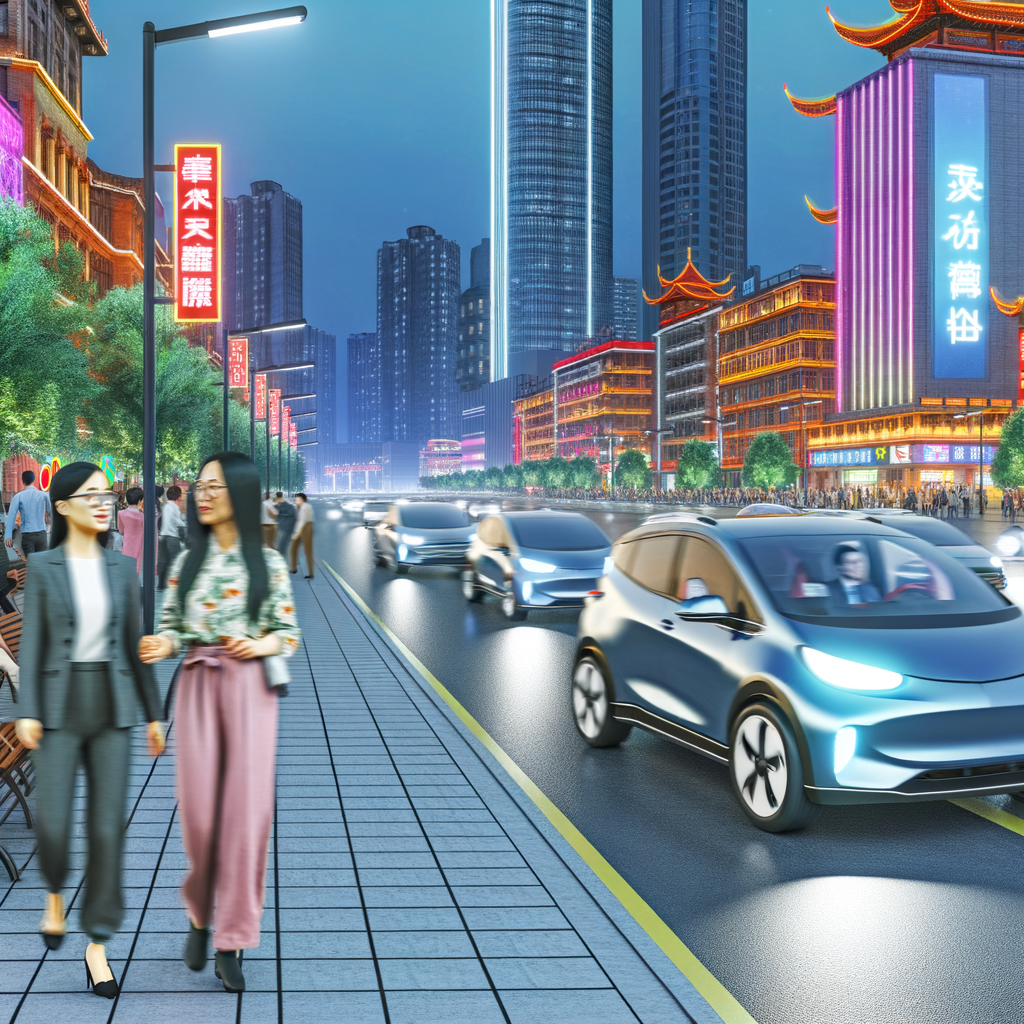
Navigating the dynamic landscape of the world's largest automotive market, China, presents a unique blend of opportunities and challenges for both domestic car brands and foreign automakers. The country's growing economy, coupled with rapid urbanization and an expanding middle class, has propelled it to the forefront of global automotive sales and production. This surge in demand is not just for conventional vehicles but is significantly skewed towards Electric Vehicles (EVs) and New Energy Vehicles (NEVs), driven by strong government incentives and mounting environmental concerns.
The Chinese automotive market is highly competitive, with market competition thriving not only among local manufacturers but also between foreign brands seeking to make their mark. To effectively tap into this vast consumer base, foreign automakers often enter into joint ventures with local Chinese companies. This strategic partnership is not just a business necessity but a requirement to navigate the complex regulatory landscape that governs China's auto industry. These collaborations are crucial for foreign entities aiming to understand and adapt to consumer preferences, which can vary significantly from those in Western markets.
Technological advancements play a pivotal role in shaping the future of the automotive industry in China. The emphasis on EVs and NEVs has led to a surge in innovation, with both domestic and international players racing to develop vehicles that are not only environmentally friendly but also equipped with the latest technology to appeal to the tech-savvy Chinese consumer.
However, the path is fraught with challenges. The regulatory landscape in China is ever-evolving, with the government frequently adjusting policies to steer the market in a direction that aligns with national interests and environmental goals. Foreign companies, in particular, must stay abreast of these changes to avoid being caught off-guard. Additionally, the market is characterized by rapidly changing consumer preferences, with Chinese buyers increasingly demanding vehicles that offer a blend of performance, comfort, and cutting-edge technology.
Despite these hurdles, the opportunities in China's automotive market are immense. Government incentives for EVs and NEVs continue to drive demand for these vehicles, creating a burgeoning segment that automakers cannot afford to ignore. Moreover, China's sheer market size and the potential for further urbanization and growth of the middle class provide a fertile ground for companies willing to invest in understanding this unique market.
In conclusion, success in China's automotive market requires a comprehensive strategy that encompasses strategic partnerships, a deep understanding of the regulatory environment, agility in responding to consumer preferences, and a commitment to technological innovation. For those able to navigate its complexities, the rewards are substantial, offering a significant share in the largest automotive market in the world.
In conclusion, China's position as the top and largest automotive market globally is undisputed, fueled by its growing economy, expanding urbanization, and an increasingly affluent middle class. This dynamic market, characterized by robust demand for both domestic car brands and foreign automakers, is at the forefront of the shift towards Electric Vehicles (EVs) and New Energy Vehicles (NEVs), driven by environmental concerns and strong government incentives. The strategic partnerships formed through joint ventures between foreign automakers and local Chinese companies are essential for navigating the complex regulatory landscape and tapping into China's vast consumer base.
However, succeeding in this competitive arena demands a deep understanding of the intricate interplay between consumer preferences, market competition, technological advancements, and government policies. The emphasis on EVs and NEVs, in particular, highlights the market's rapid evolution and the critical role of innovation in staying ahead. As China continues to lead in the global automotive industry, the ability to adapt to its changing regulations, consumer demands, and technological shifts will be paramount for any player aiming to make a significant impact.
The future of the automotive sector within China looks promising yet challenging, teeming with opportunities for those who can skillfully navigate its dynamic landscape. With the right approach, focusing on environmental sustainability, technological innovation, and strategic partnerships, companies can thrive in the world's largest automotive market. As the industry evolves, keeping a close eye on the trends shaping China's automotive market will be crucial for any stakeholder looking to drive success in this lucrative, yet intricate environment.
China
Driving the Future: How China’s Urbanization and Growing Economy Fuel the World’s Largest Automotive Market with a Surge in EVs and NEVs
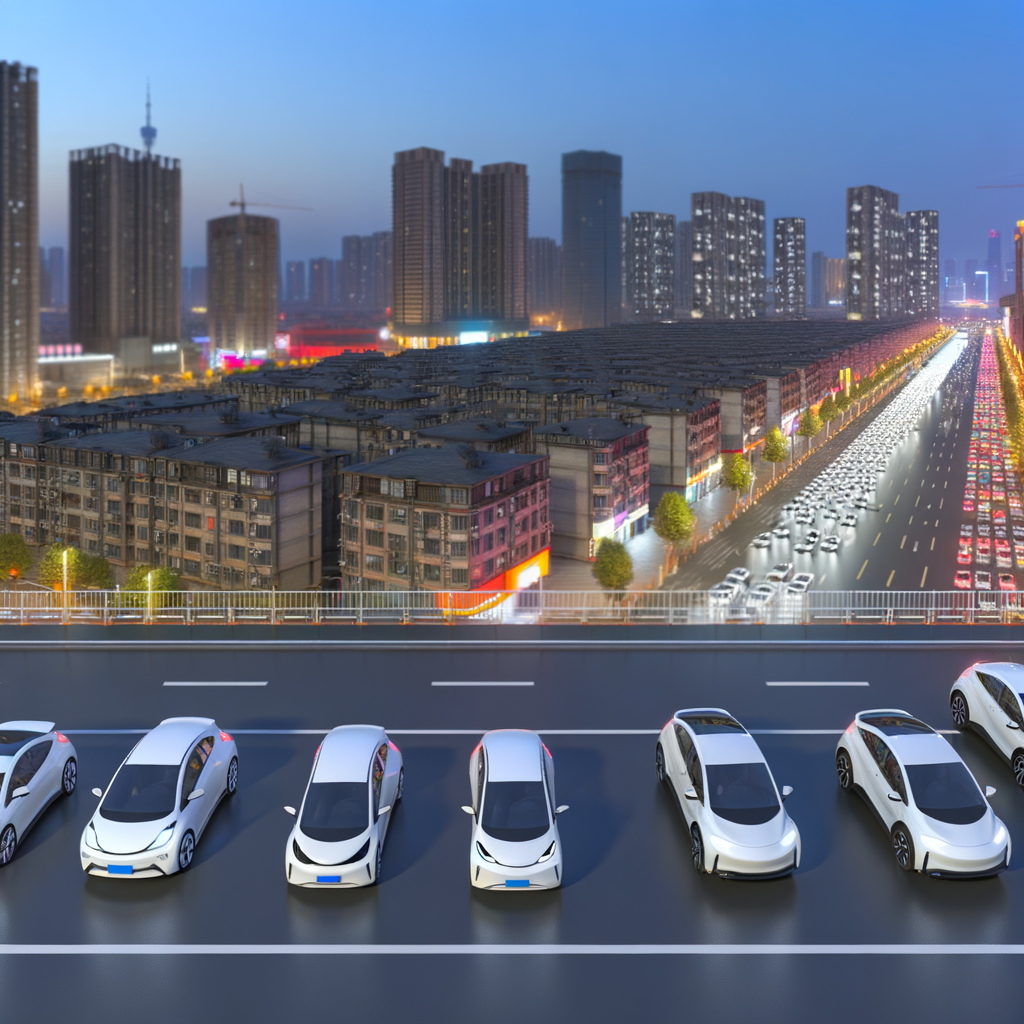
Navigating the complexities of China, the top Largest Automotive Market, offers unique opportunities and challenges for both foreign automakers and domestic car brands. With a growing economy, rapid urbanization, and increasing environmental concerns, there's a significant shift towards Electric Vehicles (EVs) and New Energy Vehicles (NEVs), driven by consumer preferences and government incentives. To succeed, foreign companies often enter joint ventures to adapt to the regulatory landscape, leveraging strategic partnerships and technological advancements to compete. Success hinges on understanding market competition and aligning with the vision for a greener future.
In an era where technological advancements and environmental concerns are steering the global automotive industry towards a sustainable future, the China automotive market stands at the forefront as the largest automotive market in the world. This dynamic market, fueled by a rapidly growing economy and an expanding urban landscape, is not just a battleground for the top domestic car brands and foreign automakers but also a fertile ground for the flourishing of Electric Vehicles (EVs) and New Energy Vehicles (NEVs). With a burgeoning middle class hungry for innovation and quality, China has become a pivotal player in shaping market competition and consumer preferences on a global scale. The surge in demand for EVs and NEVs, driven by robust government incentives and a collective push towards reducing environmental footprints, highlights China's pivotal role in the automotive sector's evolution. However, navigating this lucrative market requires a nuanced understanding of its regulatory landscape, a knack for forming strategic partnerships through joint ventures, and an ability to adapt to the rapid pace of urbanization and technological advancements. This article delves into the complexity and opportunity within the China automotive market, offering insights into how foreign and domestic players can succeed in a market characterized by fierce competition, stringent regulations, and a shifting focus towards sustainable mobility solutions.
1. "Navigating the World's Largest Automotive Market: China's Growing Economy, Urbanization, and the Surge in Electric and New Energy Vehicles"

Navigating the world's largest automotive market, China, presents a unique set of opportunities and challenges for industry players. This market's rapid expansion is largely fueled by the country's growing economy and accelerating urbanization, which have propelled it to the forefront of global automotive sales and production. As more people migrate to cities and enter the middle class, the demand for vehicles, particularly Electric Vehicles (EVs) and New Energy Vehicles (NEVs), has surged. This increase is significantly influenced by environmental concerns and the Chinese government's push for cleaner transportation options through various incentives.
The appeal of EVs and NEVs in China is not just a trend but a pivotal shift in consumer preferences, driven by a desire for innovative and eco-friendly transportation solutions. This shift is supported by substantial technological advancements in the automotive sector, making electric and new energy vehicles more accessible and attractive to the Chinese consumer. Domestic car brands, recognizing the potential of this market segment, have been quick to innovate and compete, often outpacing foreign automakers in the EV and NEV space.
However, for foreign automakers looking to tap into the largest automotive market, forming joint ventures with local Chinese companies has become a critical strategy. These partnerships are essential for navigating the complex regulatory landscape of China, which includes unique requirements and standards not seen in other markets. Joint ventures offer a pathway for foreign brands to access China's vast consumer base while complying with local regulations and capitalizing on government incentives designed to promote the adoption of EVs and NEVs.
The competitive dynamics of the Chinese automotive market are intense, with market competition not just between domestic and foreign brands but also among the burgeoning number of EV and NEV producers. Success in this market requires a deep understanding of consumer preferences, which are increasingly leaning towards innovative, environmentally friendly vehicles that align with the government's vision for a greener future.
Strategic partnerships, whether through joint ventures or collaborations with technology companies, are becoming increasingly important for automakers to leverage the full potential of China's automotive market. These partnerships enable companies to share resources, technology, and market insights, making it easier to adapt to fast-changing consumer preferences and technological advancements.
In conclusion, the Chinese automotive market's landscape is shaped by its growing economy, rapid urbanization, environmental concerns, and the government's push towards electrification. For automakers, success in this lucrative but challenging market hinges on their ability to understand and adapt to these dynamics, leveraging joint ventures and strategic partnerships to navigate the regulatory environment and meet the evolving needs of Chinese consumers.
In summary, the journey through the world's largest automotive market unveils a landscape shaped by China's growing economy, rapid urbanization, and an unmistakable pivot towards Electric Vehicles (EVs) and New Energy Vehicles (NEVs). This shift, powered by government incentives and a collective environmental consciousness, showcases the dynamic interplay between consumer preferences, technological advancements, and regulatory frameworks. The allure of this vast market has drawn in both domestic car brands and foreign automakers, the latter navigating the complex regulatory landscape through strategic joint ventures with local entities. These collaborations are not just a gateway into the Chinese market but a testament to the importance of understanding and integrating with local market nuances and consumer behaviors. As the world watches, the competition within this lucrative market continues to intensify, driven by innovation, government policies, and a relentless pursuit of meeting and shaping consumer demand. The China automotive market, with its unique blend of challenges and opportunities, underscores the necessity for companies to adapt, innovate, and forge strategic partnerships to thrive. Amidst the bustling market competition, the focus on EVs and NEVs highlights a global shift towards sustainability, positioning China at the forefront of this transformative era in the automotive industry.
China
Driving Success in the World’s Top Arena: Unveiling China’s Largest Automotive Market Dynamics, from EVs to Joint Ventures

Navigating the complexities of the world's largest automotive market, this article explores the blend of opportunities and challenges in China for both foreign automakers and domestic car brands amid stiff market competition. With a growing economy, urbanization, and an expanding middle class driving demand, there's a significant shift towards Electric Vehicles (EVs) and New Energy Vehicles (NEVs), propelled by environmental concerns and government incentives. The piece underscores the importance of joint ventures for navigating the regulatory landscape, tapping into consumer preferences, and harnessing technological advancements. These strategic partnerships between foreign and domestic companies are pivotal in adapting to a market increasingly focused on environmentally friendly vehicles and the latest technology. Success hinges on understanding the regulatory landscape, leveraging technological advancements, and aligning with consumer preferences and environmental mandates through strategic partnerships.
In the heart of the global automotive industry's evolution, China stands as the undisputed leader, boasting the title of the Largest Automotive Market in the world. This nation's automotive sector, a critical component of its rapidly growing economy, is a vibrant ecosystem of innovation, competition, and strategic maneuvering, fueled by a burgeoning middle class and accelerated urbanization. As consumer preferences shift towards environmentally friendly options, Electric Vehicles (EVs) and New Energy Vehicles (NEVs) are gaining unprecedented momentum, supported by robust government incentives and a collective environmental consciousness. This dynamic landscape presents a fertile ground for both domestic car brands and foreign automakers, the latter often entering the fray through joint ventures with local companies to overcome the complex regulatory landscape. However, navigating this market is no small feat. It demands a deep understanding of consumer behavior, market trends, technological advancements, and the art of forming strategic partnerships. With environmental concerns, market competition, and government policies playing pivotal roles, this article delves into the intricacies of "Navigating the Largest Automotive Market: Trends, Opportunities, and Challenges in China's Booming Industry." It's a comprehensive exploration designed to uncover what makes this market tick, the opportunities it harbors, and the challenges that lie ahead for stakeholders aiming to make their mark in China's automotive future.
1. "Navigating the Largest Automotive Market: Trends, Opportunities, and Challenges in China's Booming Industry"
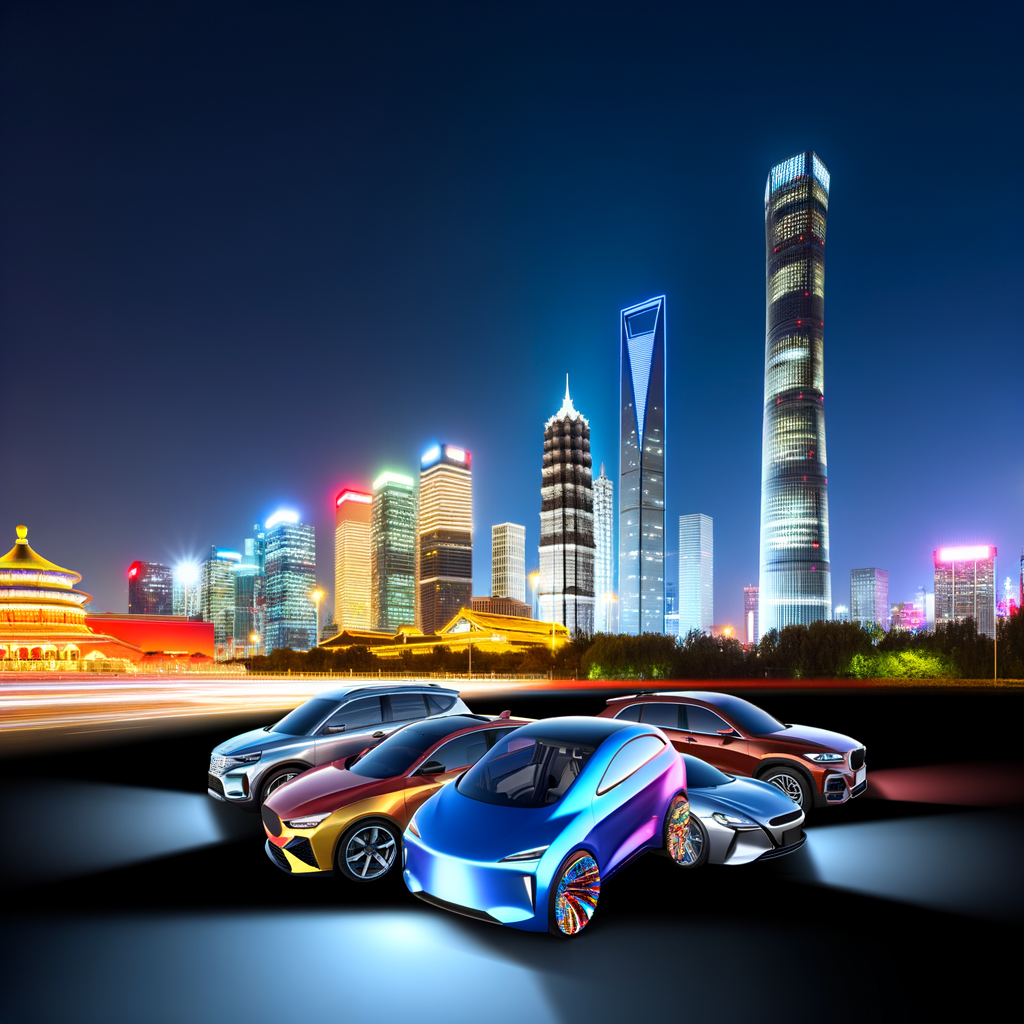
Navigating the vast and dynamic expanse of the largest automotive market in the world, China's booming industry presents a unique amalgamation of opportunities and challenges for both domestic and foreign automakers. At the heart of this burgeoning market is the rapidly growing economy, fueled by an expanding middle class and accelerated urbanization, which has propelled the demand for vehicles to unprecedented heights. This demand is not just for any vehicles; there's a noticeable tilt towards Electric Vehicles (EVs) and New Energy Vehicles (NEVs), driven primarily by environmental concerns and robust government incentives aimed at reducing the country's carbon footprint.
The Chinese automotive market's landscape is marked by an intense competition that sees top domestic car brands vying for market dominance alongside foreign automakers. The latter often enter the fray through strategic joint ventures with local Chinese companies, a critical move to navigate the complex regulatory landscape of China while tapping into its vast consumer base. These partnerships are crucial, not just for market access, but also as a way to share technological advancements and innovations, especially in the realm of EVs and NEVs.
Consumer preferences in China are rapidly evolving, influenced significantly by technological advancements and the digital revolution. There is a growing appetite for vehicles that are not only environmentally friendly but are also equipped with the latest in connectivity and autonomous driving technologies. This shift in consumer expectations is pushing automakers to constantly innovate, making the market highly dynamic.
However, the path is not devoid of challenges. The regulatory landscape in China is notoriously intricate, with policies and incentives that can change rapidly, often requiring companies to be agile and adaptable. Additionally, the push towards NEVs and EVs, while creating opportunities, also introduces a layer of complexity in terms of technology development, supply chain logistics, and infrastructure requirements, such as charging stations.
The strategic partnerships between foreign and domestic companies have proven to be a linchpin in this context, enabling knowledge transfer and sharing of best practices. These collaborations are essential for companies looking to not only survive but thrive in the competitive landscape of China's automotive market. They facilitate a deeper understanding of local consumer behavior, which is indispensable for tailoring product offerings to meet the nuanced demands of Chinese customers.
In conclusion, China's position as the largest automotive market globally is a magnet for both domestic and international automakers. The push towards EVs and NEVs, backed by government incentives, is reshaping the industry, offering a plethora of opportunities tempered with challenges. Success in this market is contingent upon understanding and adapting to the regulatory landscape, consumer preferences, and leveraging technological advancements through strategic partnerships. For those willing to navigate its complexities, China's automotive market represents an unparalleled frontier of growth and innovation.
In summary, the journey through the Largest Automotive Market reveals a landscape filled with both vast opportunities and significant challenges. As the epicenter of automotive production and sales, China's booming industry is propelled forward by its growing economy, rapid urbanization, and an ever-expanding middle class with evolving consumer preferences. The market's dynamic nature is further shaped by environmental concerns, leading to a pronounced shift towards Electric Vehicles (EVs) and New Energy Vehicles (NEVs), supported by substantial government incentives.
Foreign automakers looking to tap into this lucrative market must navigate the complex regulatory landscape through strategic partnerships and joint ventures with local Chinese companies. These collaborations are essential for accessing China's vast consumer base while complying with domestic policies. The emphasis on technological advancements and the shift towards greener modes of transport underscore the importance of innovation in staying competitive.
Moreover, the preference for both domestic car brands and international names highlights the diverse and competitive nature of the market. Success in China's automotive industry requires a deep understanding of local market trends, consumer behavior, and the ability to form effective joint ventures and strategic partnerships.
As the largest automotive market in the world continues to evolve, companies—both domestic and international—must stay agile, adapting to the latest technological advancements, regulatory changes, and consumer preferences. The road ahead in China's automotive market promises growth and transformation, driven by environmental concerns, technological innovation, and a rapidly changing economic landscape. For those able to navigate its complexities, the rewards can be substantial, setting the stage for a future where mobility is cleaner, more efficient, and more accessible to China's burgeoning population.
China
Driving Success in the East: How to Master the World’s Largest Automotive Market Amidst China’s Growing Economy and Shifting Consumer Preferences
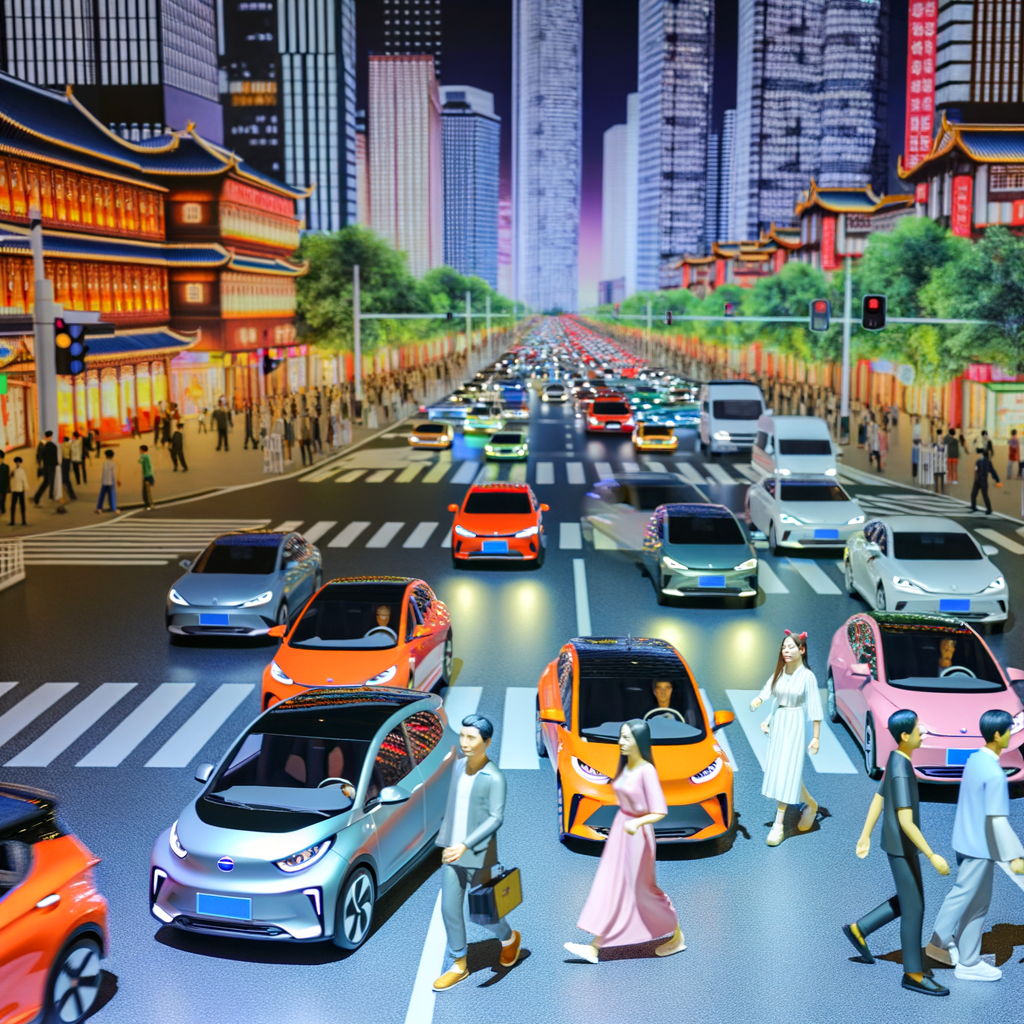
In the world's largest automotive market, China presents a mix of challenges and opportunities for both domestic car brands and foreign automakers, driven by a growing economy, rapid urbanization, and a shift in consumer preferences towards Electric Vehicles (EVs) and New Energy Vehicles (NEVs). Supported by government incentives aimed at reducing pollution and fostering technological advancements, players in the market must navigate a complex regulatory landscape, often forming joint ventures for better access and insights. With intense market competition, success demands a commitment to technological advancements and strategic partnerships, aligning with the evolving demand for EVs, NEVs, and environmental concerns to thrive in this dynamic environment.
In the dynamic world of automotive markets, China stands unparalleled as the top contender, boasting the title of the Largest Automotive Market on the global stage. This prestigious position is not just in terms of sheer production and sales volume but also reflects the intricate interplay of a rapidly growing economy, accelerating urbanization, and a burgeoning middle class with evolving consumer preferences. Amidst this backdrop, the Chinese automotive sector has emerged as a crucible for innovation and competition, drawing both domestic car brands and foreign automakers into its fold. The latter often enter the market through strategic joint ventures, a testament to the complex yet rewarding nature of navigating China's regulatory landscape.
As environmental concerns take center stage worldwide, China is spearheading a green revolution within the automotive industry, with Electric Vehicles (EVs) and New Energy Vehicles (NEVs) gaining unprecedented traction. This shift is significantly fueled by government incentives aimed at reducing pollution and fostering sustainable technologies. Such policies are not just reshaping consumer preferences towards EVs and NEVs but are also influencing global automotive trends, making an understanding of China's market essential for any player aiming to make a mark in the industry.
This article delves deep into the nuances of the world's largest automotive market, exploring the symbiotic relationship between foreign automakers and domestic brands through joint ventures, the strategic importance of decoding the regulatory landscape, and the evolutionary consumer trends favoring technological marvels over traditional automobiles. It further examines how environmental concerns are driving innovation, with a particular focus on China's push towards electric and new energy vehicles. With strategic partnerships and market competition acting as the twin pillars of success, this comprehensive guide sheds light on the multifaceted and competitive nature of China's automotive industry, offering key insights for navigating its complexities and seizing the opportunities it presents.
1. Navigating the Dynamics of the World's Largest Automotive Market: Understanding China's Growing Economy, Urbanization, and Consumer Preferences
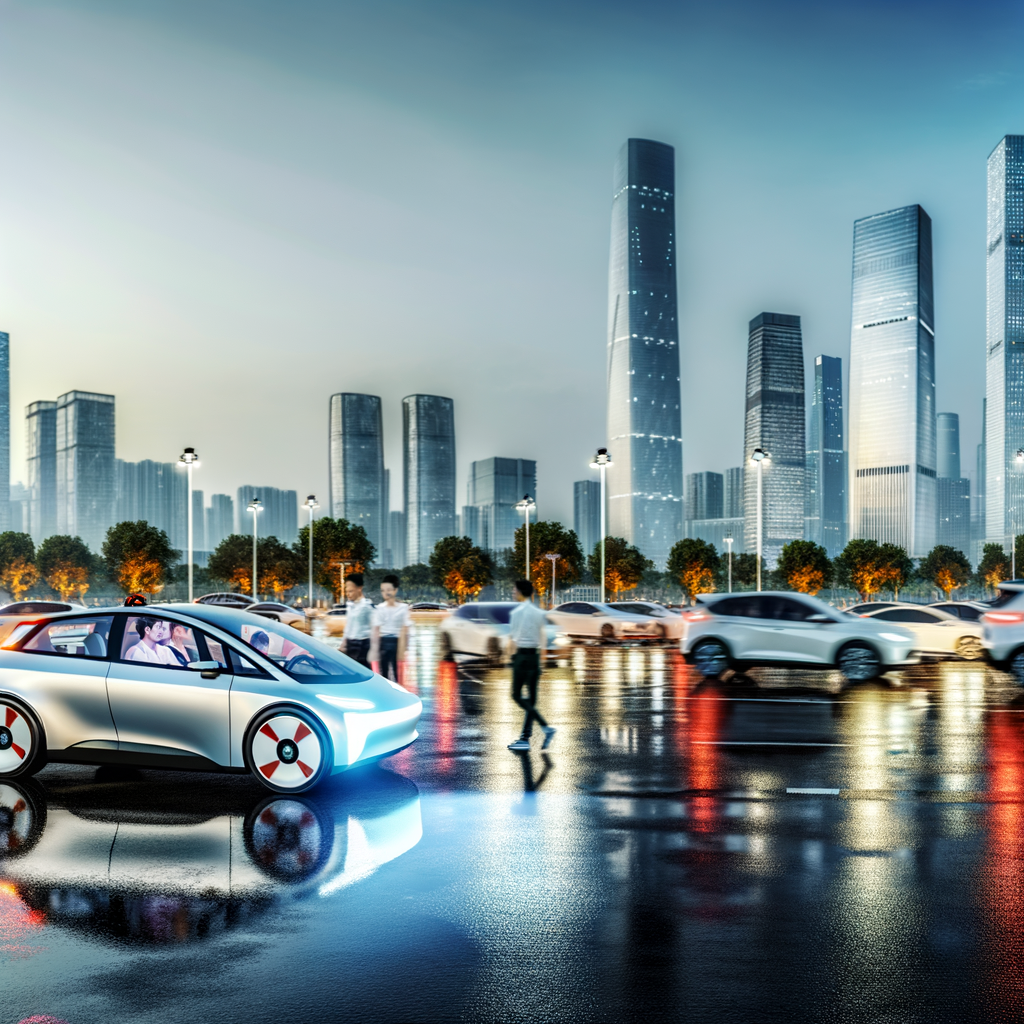
Navigating the dynamics of the world's largest automotive market requires a keen understanding of various critical factors. China, renowned as the largest automotive market, presents a unique blend of opportunities and challenges, driven by its rapidly growing economy, significant urbanization, and evolving consumer preferences. This vibrant backdrop is further colored by the nation's push towards Electric Vehicles (EVs) and New Energy Vehicles (NEVs), aimed at addressing environmental concerns and bolstering technological advancements.
The Chinese automotive market's growth is closely tied to the country's burgeoning middle class and accelerated urbanization. These demographic shifts have led to increased demand for both domestic car brands and offerings from foreign automakers. However, foreign entities looking to tap into this vast consumer base must navigate the complex regulatory landscape, often requiring forming joint ventures with local Chinese companies. Such strategic partnerships are vital for success, enabling access to essential market insights and distribution networks.
Consumer preferences in China are rapidly evolving, with a marked shift towards sustainability and innovation. This has propelled the popularity of EVs and NEVs, supported by substantial government incentives. These incentives are part of broader environmental policies aimed at reducing pollution levels and promoting green technologies. As a result, both domestic and international manufacturers are racing to capture a share of this growing segment, leading to intense market competition.
Technological advancements play a pivotal role in shaping the market, with consumers showing a keen interest in features that enhance connectivity, safety, and performance. Automakers are thus investing heavily in research and development to meet these expectations, further fueling market dynamism.
The regulatory landscape in China is another critical aspect that automakers must carefully navigate. The government's role in the automotive sector is significant, with policies and incentives designed to guide the market towards sustainable growth. These regulations impact everything from production to sales, influencing the strategic decisions of automakers.
In conclusion, succeeding in the Chinese automotive market requires a multifaceted strategy. Companies must understand the local regulatory environment, foster strategic partnerships, align with consumer preferences for EVs and NEVs, and stay at the forefront of technological advancements. As the market continues to evolve, driven by a growing economy, urbanization, and environmental concerns, automakers must remain agile and responsive to maintain a competitive edge in the world's largest automotive market.
In conclusion, the position of China as the world's largest automotive market is not just a testament to its growing economy and urbanization but also a reflection of the complex interplay of consumer preferences, technological advancements, and government incentives. The country's rapid embrace of electric vehicles (EVs) and new energy vehicles (NEVs) highlights a future-oriented approach, driven by environmental concerns and supported by significant government backing. This, coupled with the dynamic regulatory landscape, makes strategic partnerships through joint ventures between foreign automakers and domestic car brands not just beneficial but essential for navigating the competitive and ever-evolving market.
For companies looking to enter or expand within this lucrative market, understanding the nuances of consumer preferences, from the burgeoning middle class's demand for luxury to the general population's increasing environmental consciousness, is key. Additionally, staying abreast of technological advancements and aligning with the government's vision through investments in EVs and NEVs can provide a competitive edge.
The China automotive market, characterized by its size, competition, and potential for innovation, offers unparalleled opportunities for those able to adapt to its complexities. Success in this market requires more than just an understanding of cars; it demands a deep dive into the socio-economic fabric of China, a willingness to form strategic partnerships, and an agile approach to business. As the market continues to grow and evolve, so too will the strategies needed to succeed in the largest automotive market in the world.
China
Revving Up Success: Strategies for Dominating the Largest Automotive Market Amid EV Boom and Regulatory Challenges
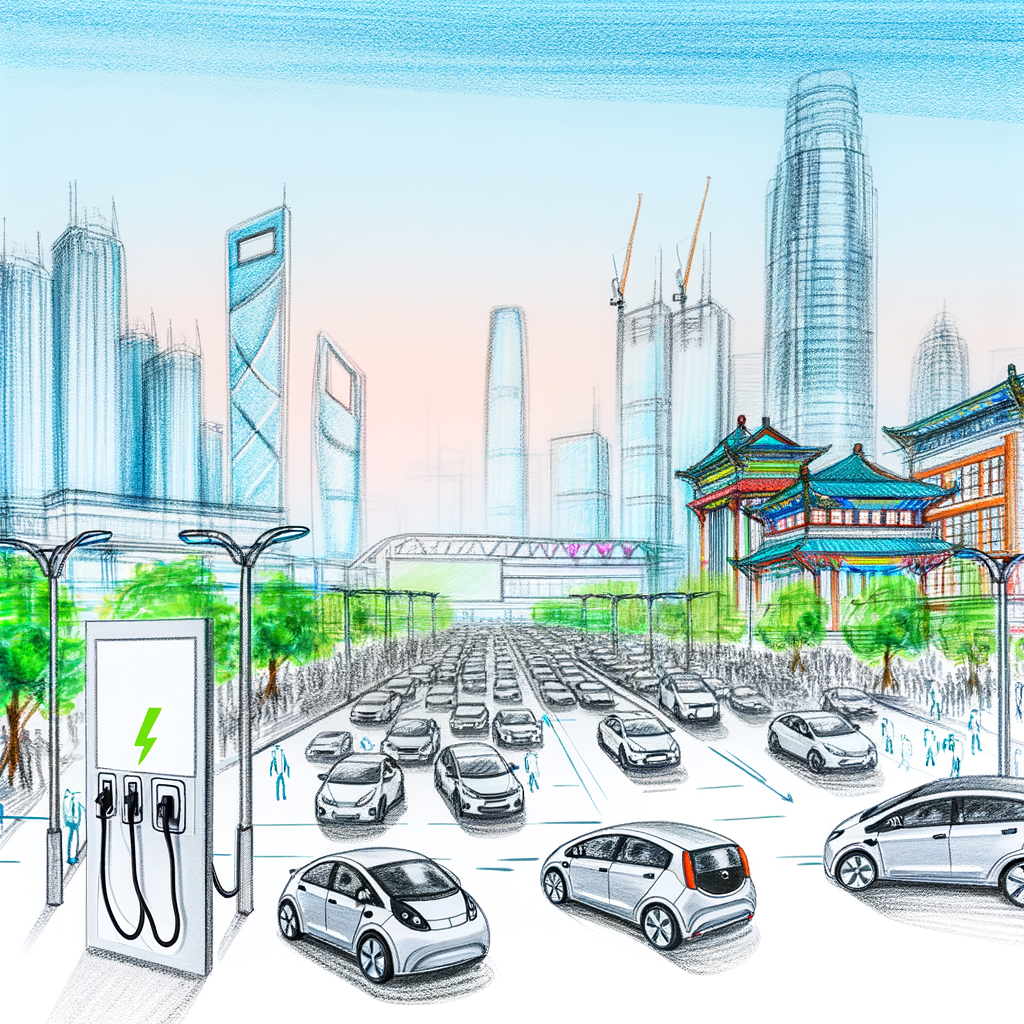
In the world's largest automotive market, top foreign automakers and domestic car brands are thriving by adeptly navigating the complex regulatory landscape and shifting consumer preferences toward Electric Vehicles (EVs) and New Energy Vehicles (NEVs). Supported by government incentives and driven by a growing economy, urbanization, and environmental concerns, these entities are engaging in strategic partnerships, including joint ventures, to access a vast consumer base and foster technological advancements. Success hinges on leveraging these partnerships, staying ahead in market competition through innovation, and responding to regulatory changes and consumer demands for sustainable vehicle options.
In the rapidly evolving world of global commerce, the Chinese automotive sector stands as a behemoth, its vast expanse marked by a blend of innovation, strategic partnerships, and an ever-increasing demand for mobility. As the largest automotive market in both production and sales, China's influence stretches far beyond its borders, shaping industry trends and setting benchmarks for the future of transportation. With its growing economy, burgeoning middle class, and swift urbanization, the country has emerged as a crucial battleground for both domestic car brands and foreign automakers, each vying for dominance in a landscape that is as challenging as it is rewarding.
In an era where Electric Vehicles (EVs) and New Energy Vehicles (NEVs) are becoming the norm rather than the exception, thanks to robust government incentives and escalating environmental concerns, China is at the forefront of an electrification revolution. This push towards greener alternatives is not just a nod to environmental stewardship but a strategic maneuver within the global automotive narrative, where technological advancements and consumer preferences dictate the pace of progress.
Navigating this complex territory requires a deep understanding of the regulatory landscape, a knack for forming the right joint ventures and strategic partnerships, and an agile approach to market competition. From the surge of EVs and NEVs to the intricacies of succeeding in China's automotive sector, and from the dynamics of urbanization and the growing economy to the critical role of innovation in addressing environmental concerns, this article delves into the multifaceted narrative of China's automotive market.
Join us as we explore how top players are thriving in the world's largest automotive market, the key trends shaping the future of transportation in China, and the strategic moves that could determine the winners in a race where the stakes are as high as the rewards. Whether it's the allure of electric mobility, the challenge of regulatory compliance, the impact of consumer preferences, or the drive towards sustainability, the journey through China's automotive landscape is an exploration of how global trends and local dynamics converge to redefine mobility for millions.
1. "Navigating the Road Ahead: How Top Players Thrive in the World's Largest Automotive Market"
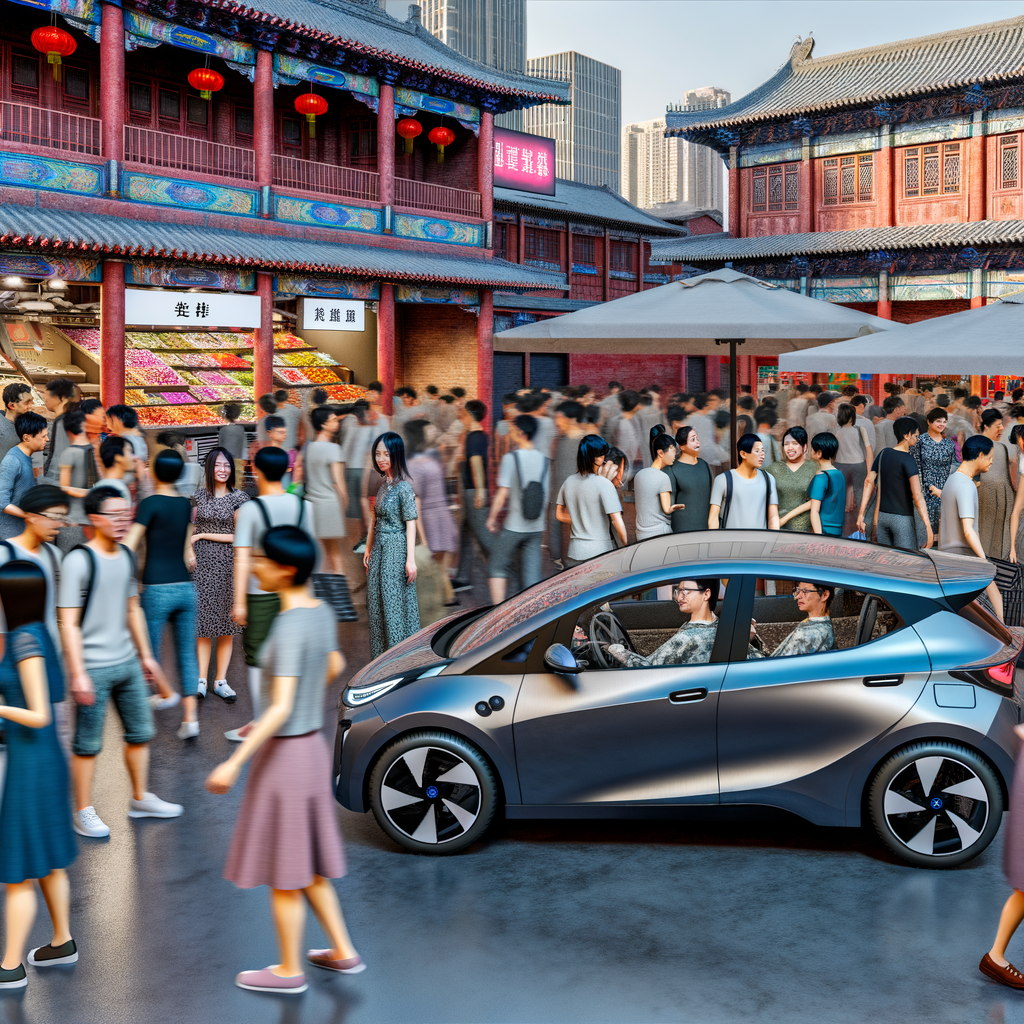
In the bustling heart of the world's largest automotive market, top players are steering through the complexities of regulatory landscapes and consumer preferences with astute agility and innovative strategies. China's automotive market, buoyed by a growing economy, rapid urbanization, and swelling environmental concerns, has become a beacon for both domestic car brands and foreign automakers eager to tap into its vast potential. The rise of Electric Vehicles (EVs) and New Energy Vehicles (NEVs) underscores the market's dynamic shift towards sustainability, driven by robust government incentives and an increasing consciousness among consumers about environmental issues.
Strategic partnerships, particularly through joint ventures, have emerged as a critical pathway for foreign automakers to navigate China's intricate regulatory environment. These collaborations with local Chinese companies offer a unique advantage, enabling access to the substantial consumer base while ensuring compliance with local regulations. This model of cooperation has not only facilitated a smoother entry for foreign brands into the Chinese market but has also fostered a spirit of innovation and exchange, pushing the boundaries of technological advancements in the automotive sector.
Understanding and adapting to consumer preferences is crucial for survival and growth in this highly competitive landscape. The top players in the market are those that closely monitor shifts in consumer behavior, including the growing preference for EVs and NEVs. By aligning their product offerings with these trends, companies can stay ahead of the competition and secure their position in the market.
Moreover, the role of government incentives cannot be overstated in shaping the direction of the automotive industry in China. These incentives, aimed at promoting the adoption of cleaner and more sustainable vehicle options, have significantly influenced market dynamics, encouraging both manufacturers and consumers to lean towards EVs and NEVs.
Finally, the key to thriving in the world's largest automotive market lies in leveraging technological advancements. The rapid pace of innovation in the automotive industry, from autonomous driving technologies to advanced electric powertrains, offers a rich ground for companies to differentiate themselves and meet the evolving needs of the market.
By weaving together strategic partnerships, a deep understanding of consumer preferences, and an unwavering commitment to innovation, the top players in China's automotive market are navigating the road ahead with confidence and precision. In this highly competitive, ever-changing environment, staying attuned to the nuances of market competition, regulatory changes, and global economic trends is essential for success.
In conclusion, thriving in the world's largest automotive market requires a multifaceted strategy that addresses the unique challenges and opportunities presented by this dynamic environment. The China automotive market, propelled by a growing economy, increasing urbanization, and a burgeoning middle class, has positioned itself as a pivotal arena for both domestic car brands and foreign automakers. The surge in demand for electric vehicles (EVs) and new energy vehicles (NEVs), driven by environmental concerns and robust government incentives, underscores the market's rapid evolution towards sustainable transportation solutions.
To navigate the complex regulatory landscape, many foreign companies have entered into joint ventures with local Chinese firms, leveraging strategic partnerships to tap into the vast consumer base while adhering to local policies. Understanding consumer preferences, which increasingly lean towards technologically advanced and environmentally friendly vehicles, is crucial for companies aiming to secure a top position in this competitive market.
Moreover, the constant technological advancements and the government's active role in shaping the industry through incentives and regulations make it essential for players in the automotive sector to remain agile and innovative. As the market continues to expand and evolve, companies that can adeptly manage market competition, adapt to the regulatory landscape, and align with the shifting consumer preferences will be best positioned to succeed.
Thus, success in the China automotive market is not just about understanding the current state but also about anticipating future trends, fostering strong local partnerships, and continuously innovating to meet the ever-changing demands of this vibrant market. The journey ahead for automotive players in China is as challenging as it is rewarding, with the potential for significant growth and leadership in the global automotive industry within reach for those who can skillfully navigate its complexities.
China
Driving the Future: How China’s Growing Economy and Urbanization Are Shaping the World’s Largest Automotive Market with EVs and NEVs
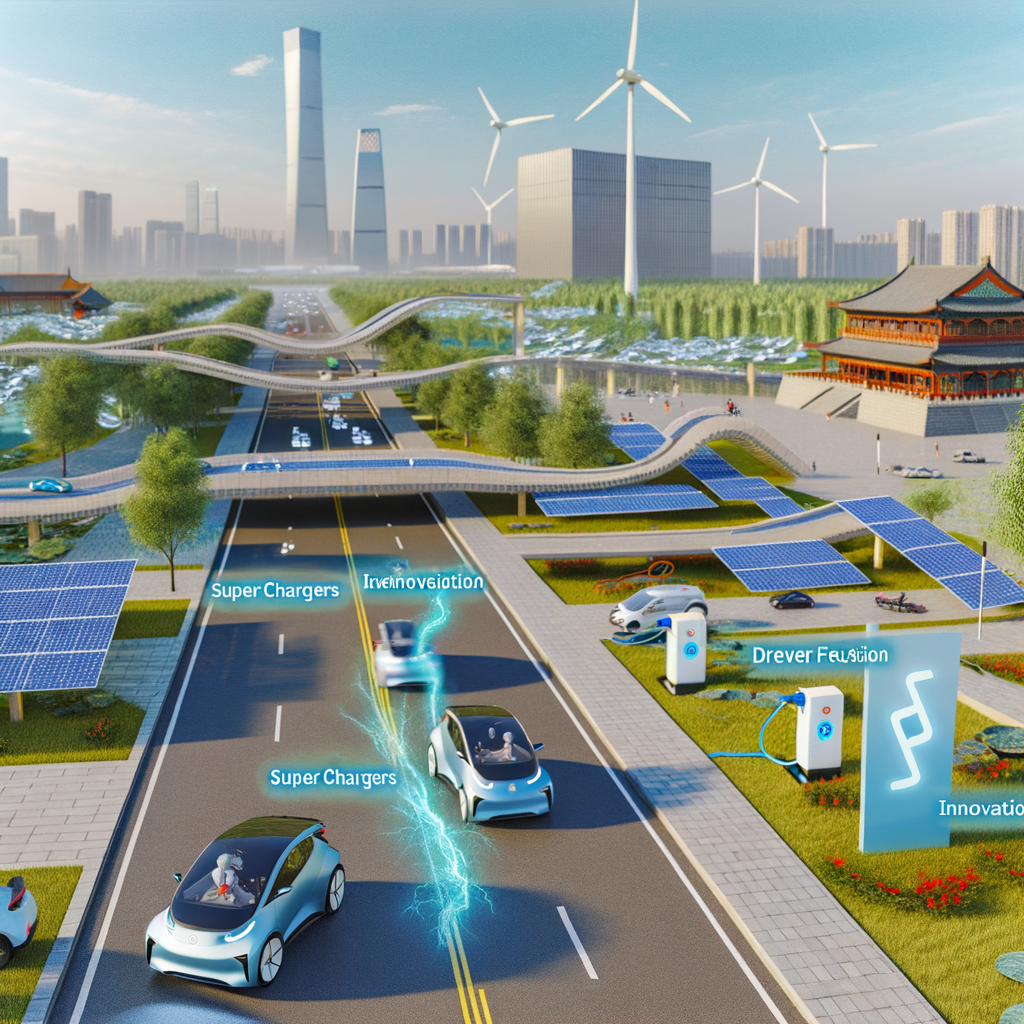
In China, the top Largest Automotive Market globally, the demand for Electric Vehicles (EVs) and New Energy Vehicles (NEVs) is soaring, fueled by the country's growing economy, urbanization, and environmental concerns. This surge is further supported by government incentives promoting sustainable transport. To capture this lucrative market, both domestic car brands and foreign automakers are leveraging technological advancements and forming joint ventures to navigate China's complex regulatory landscape. These strategic partnerships are crucial for understanding consumer preferences, tapping into local distribution networks, and staying ahead in intense market competition. Success in this competitive environment hinges on innovation, adaptability, and collaboration, highlighting the transformative impact of EVs and NEVs in the evolving automotive sector.
In the vast expanse of the global automotive industry, China stands out as the largest automotive market, a distinction it has earned through a combination of its growing economy, an expanding middle class, and rapid urbanization. This powerhouse of automotive production and sales is driving into the future with an impressive acceleration towards Electric Vehicles (EVs) and New Energy Vehicles (NEVs), fueled by a mix of government incentives, environmental concerns, and a shift in consumer preferences. As the top player in the automotive sector, China's market is not just about sheer volume; it's about the dynamic interplay of technological advancements, strategic partnerships, and a regulatory landscape that is as challenging as it is rewarding.
The landscape of China's automotive market is a testament to the country's rapid economic growth and its burgeoning role as a key influencer in the global arena. With a spotlight on domestic car brands as well as foreign automakers, the market is a battleground of competition and collaboration, where joint ventures and strategic partnerships have become essential tools for navigating the complex regulatory environment and tapping into the vast consumer base. The emphasis on EVs and NEVs underscores China's commitment to innovation and environmental stewardship, setting the stage for a transformative era in the automotive industry.
As we delve into the intricacies of the China automotive market, from the fusion of technology and tradition to the driving forces of government incentives and urbanization, we uncover the multifaceted strategies that companies must employ to thrive. Understanding the consumer engine that powers this market, alongside the evolving regulatory landscape, is crucial for any player aiming to succeed in the world's top automotive arena. Join us as we explore the roads that lead through China's dynamic automotive market, a journey that promises insight into the future of transportation, shaped by the largest automotive market in the world.
1. "Navigating the Largest Automotive Market: The Rise of Electric Vehicles and New Energy Vehicles in China's Growing Economy"

Navigating the largest automotive market in the world, China, presents a unique set of opportunities and challenges for both domestic and foreign automakers. As the Chinese economy continues to grow, fueled by rapid urbanization and an expanding middle class, consumer preferences are increasingly leaning towards Electric Vehicles (EVs) and New Energy Vehicles (NEVs). This shift is largely driven by environmental concerns and the Chinese government's commitment to reducing pollution through significant government incentives aimed at promoting cleaner modes of transportation.
The demand for EVs and NEVs has positioned China as a leader in the adoption of these technologies, making it a pivotal market for companies specializing in electric and new energy vehicles. The technological advancements in this sector are rapidly evolving, with both domestic car brands and foreign automakers racing to capitalize on the burgeoning market. The competition is fierce, as companies strive to innovate and capture the attention of Chinese consumers, who are increasingly environmentally conscious and tech-savvy.
Foreign automakers, in particular, face the added complexity of the regulatory landscape in China. To successfully penetrate the Chinese market, many choose to form joint ventures with local Chinese companies. These strategic partnerships are crucial for navigating the regulatory environment, understanding local consumer preferences, and leveraging the distribution networks necessary to reach China's vast consumer base. Joint ventures also enable foreign brands to gain insights into the local market dynamics and cultivate relationships with government entities, which can be pivotal in a market where policy can significantly influence industry trends.
The emphasis on EVs and NEVs is part of China's broader push towards sustainability and technological innovation. Government incentives, such as subsidies for electric vehicle purchases and investments in charging infrastructure, have been instrumental in accelerating the adoption of green vehicles. These initiatives reflect China's ambition to lead in the global shift towards more sustainable transportation options and to reduce its carbon footprint.
In conclusion, the landscape of the largest automotive market in the world is changing, with electric and new energy vehicles at the forefront of this transformation. Success in China's automotive market requires a deep understanding of the regulatory landscape, consumer preferences, and the ability to form strategic partnerships. With environmental concerns and technological advancements driving the market, automakers—both domestic and international—must adapt and innovate to thrive in this competitive and dynamic environment.
In conclusion, China's position as the largest automotive market in the world is a testament to its rapidly growing economy, significant urbanization, and an ever-expanding middle class with a robust appetite for both domestic car brands and international names. The surge in electric vehicles (EVs) and new energy vehicles (NEVs), powered by substantial government incentives and heightened environmental concerns, underlines a dynamic shift in consumer preferences within this vibrant market. Foreign automakers looking to tap into this lucrative landscape have found success through strategic joint ventures with local Chinese companies, a critical move to navigate the complex regulatory landscape and to forge meaningful connections with the vast consumer base.
The competitive spirit of the market, coupled with the drive for technological advancements, has set a unique stage where only those with a deep understanding of local regulations, market trends, consumer behavior, and the importance of strategic partnerships can truly thrive. As the market continues to evolve, influenced by global economic trends, environmental policies, and technological innovations, the importance of adaptability and foresight cannot be overstated for players within the China automotive industry. The trajectory of the largest automotive market is not just shaping the future of mobility in China but is also setting trends that resonate across the global automotive landscape.
China
Driving the Future: Mastering China’s Top Automotive Market Through EV Innovation, Joint Ventures, and Strategic Adaptation
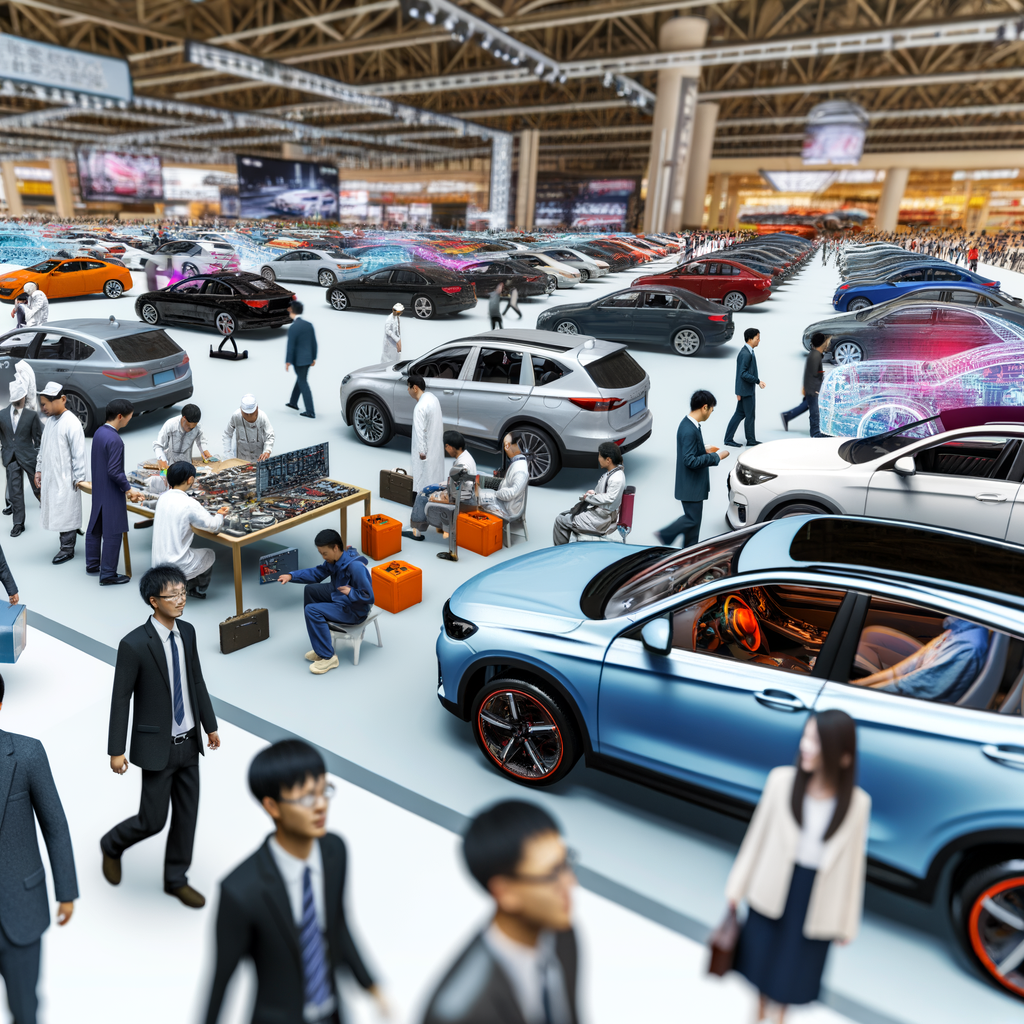
Navigating the largest automotive market, China, offers unique prospects and obstacles, with its position as the top producer and consumer driven by a growing economy, urbanization, and an expanding middle class. The shift towards Electric Vehicles (EVs) and New Energy Vehicles (NEVs), supported by environmental concerns and government incentives, shapes the market. Foreign automakers often engage in joint ventures with domestic car brands to tackle the tight regulatory landscape and cater to consumer preferences that favor eco-friendly and technologically advanced vehicles. Despite market competition and regulatory challenges that favor local companies, there's a significant growth opportunity, especially for those leveraging technological advancements in EVs and NEVs, understanding consumer needs, and forming strategic partnerships.
In the heart of the global automotive arena, China stands as a colossus, boasting the title of the Largest Automotive Market in the world. This pivotal position is bolstered by its top-ranking production and sales figures, a testament to the country's rapidly growing economy, expanding middle class, and escalating urbanization trends. The Chinese market's allure is undeniable, drawing in both domestic car brands and foreign automakers eager to tap into its vast potential. However, the landscape is far from straightforward. The allure of the Chinese automotive market is matched by its complexity, characterized by a highly competitive environment, a unique regulatory landscape, and consumer preferences that are as dynamic as they are discerning.
As we delve into "Navigating the World's Largest Automotive Market: Trends, Challenges, and Opportunities in China's Dynamic Auto Industry," we uncover the intricacies of a market at the forefront of the electric vehicle (EV) and new energy vehicle (NEV) revolution. Driven by environmental concerns and robust government incentives, the surge in EV and NEV demand represents a significant shift in consumer behavior and a clear direction for the future of automotive technology. Foreign automakers looking to make their mark in China often enter into strategic joint ventures with local companies, a critical move to navigate the complex regulatory landscape and gain access to the ever-growing consumer base.
This exploration offers a comprehensive look at the factors shaping the automotive market in China, from urbanization and a booming economy to technological advancements and market competition. Understanding these elements is crucial for anyone looking to succeed in this competitive and lucrative market. Through examining strategic partnerships, government policies, and the evolving tastes of Chinese consumers, we aim to provide a detailed roadmap for navigating the opportunities and challenges within China's dynamic auto industry.
1. "Navigating the World's Largest Automotive Market: Trends, Challenges, and Opportunities in China's Dynamic Auto Industry"
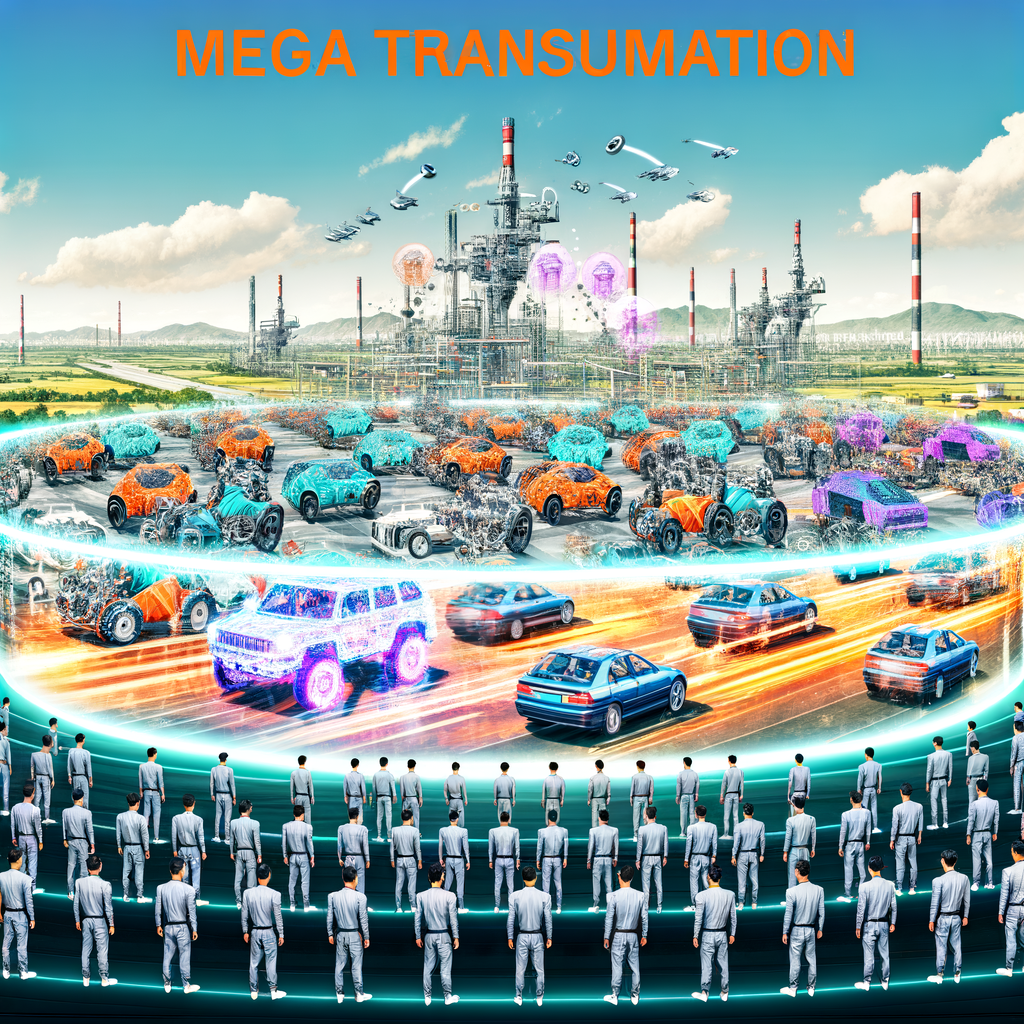
Navigating the world's largest automotive market, China, presents an intricate blend of opportunities and challenges, shaped by its dynamic auto industry. This market's prominence is underpinned by China's status as the top producer and consumer of automobiles globally, fueled by its rapidly growing economy, expanding middle class, and accelerating urbanization. The shift towards Electric Vehicles (EVs) and New Energy Vehicles (NEVs) is particularly pronounced, driven by environmental concerns and robust government incentives aimed at reducing pollution and promoting sustainable energy use.
Foreign automakers looking to tap into this lucrative market often engage in joint ventures with domestic Chinese companies. This strategic approach is not only a means to navigate the complex regulatory landscape but also a crucial step in accessing China's vast consumer base. These partnerships are instrumental in aligning with local consumer preferences, which increasingly lean towards technologically advanced and environmentally friendly vehicles.
The consumer preferences in China are evolving, with a growing demand for both high-quality domestic car brands and international automakers. This trend is further bolstered by technological advancements, making the market highly competitive. Companies that can introduce innovative features and align with the sustainability trend have a distinct advantage.
However, the market is not without its challenges. The regulatory landscape in China is notably stringent, with policies that can rapidly shift, affecting market entry and operations. These regulations often aim to promote domestic companies and technologies, posing additional hurdles for foreign players. Moreover, the competition in the automotive sector is fierce, with numerous players vying for a share of the market, making it essential for companies to differentiate themselves through unique selling propositions and strategic partnerships.
Opportunities in the Chinese automotive sector are vast, especially for companies that can leverage technological advancements in EVs and NEVs. The government's push towards electrification of the automotive industry, coupled with consumer enthusiasm for new technologies, opens up avenues for growth and innovation. By focusing on developing cutting-edge, eco-friendly vehicles that cater to the specific tastes and preferences of Chinese consumers, companies can position themselves favorably within the market.
In conclusion, navigating the largest automotive market in the world requires a deep understanding of China's unique business environment, from its regulatory framework and consumer behavior to market trends and technological shifts. Success in this dynamic and competitive landscape hinges on the ability to adapt quickly, forge strategic partnerships, and continually innovate to meet the demands of an increasingly sophisticated and environmentally conscious consumer base.
In conclusion, China's position as the world's largest automotive market is a testament to its rapidly growing economy, increasing urbanization, and the rising affluence of its burgeoning middle class. This market, characterized by a high demand for both domestic car brands and foreign automakers, has become a pivotal arena for the global automotive industry, driven by a keen interest in Electric Vehicles (EVs) and New Energy Vehicles (NEVs). The shift towards these eco-friendly options, heavily supported by government incentives and stemming from environmental concerns, underscores the market's dynamic nature and its alignment with global sustainability trends.
Navigating the regulatory landscape of China's automotive sector, with its preference for joint ventures, requires a nuanced understanding of local market conditions, consumer preferences, and strategic partnerships. Success in this highly competitive environment demands not just an adherence to technological advancements but also a flexible approach to market competition and collaboration with local entities. The importance of adapting to consumer needs, leveraging government incentives, and staying ahead in the race for innovation cannot be overstated in seizing the opportunities presented by China's automotive market.
As foreign and domestic players vie for dominance in this lucrative market, the trajectory of China's automotive industry will undoubtedly influence global market trends, technological advancements in EVs and NEVs, and the strategic decisions of international automakers. The future of the automotive sector in China looks promising, with its vast consumer base, government backing, and ongoing urbanization and economic growth presenting endless possibilities. For businesses willing to navigate its complex regulatory framework and tap into the evolving consumer preferences, China’s automotive market offers a fertile ground for growth, innovation, and long-term success.
China
Driving into the Future: Mastering the Complexities of China’s Largest Automotive Market Amidst EV Boom and Strategic Partnerships
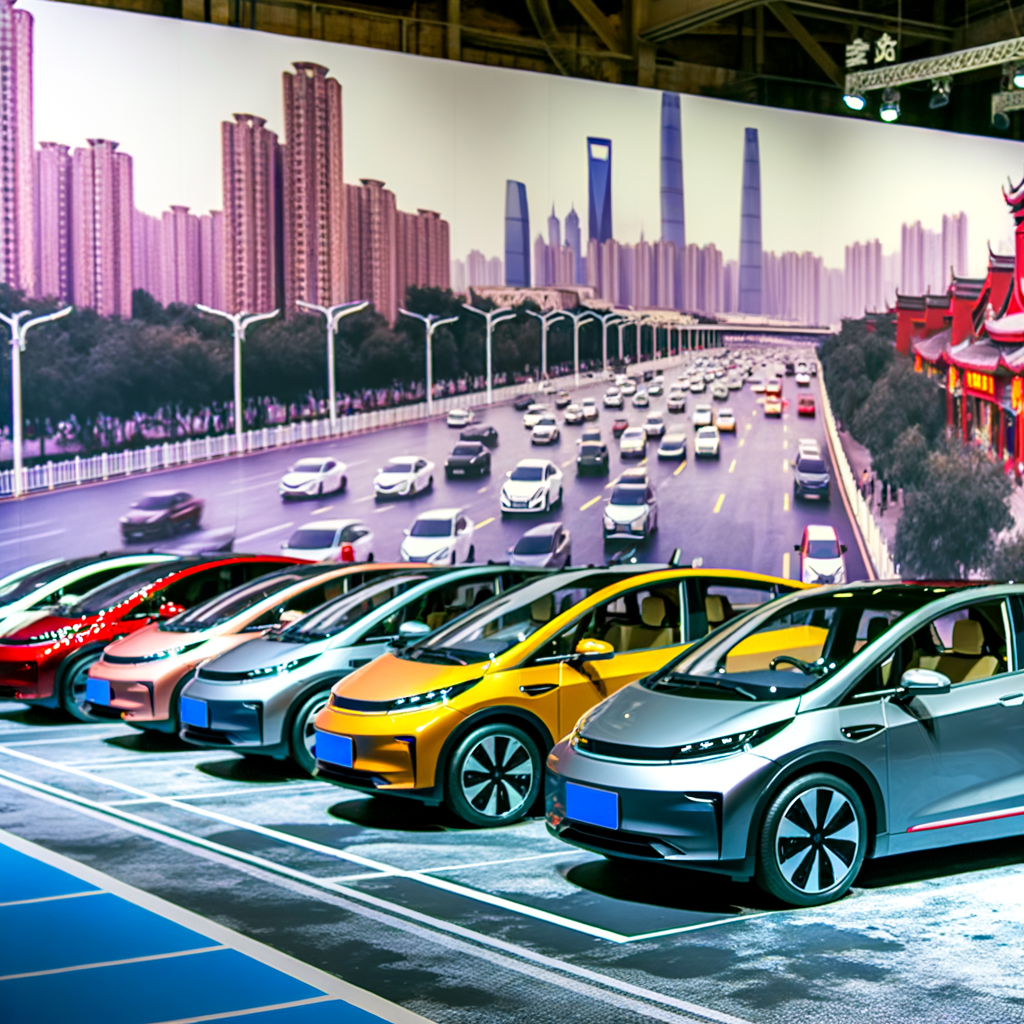
Navigating China's status as the top Largest Automotive Market involves understanding its growing economy, rapid urbanization, and a shift towards environmental concerns among consumers. The market is booming with opportunities for both domestic car brands and foreign automakers due to the rising middle class's purchasing power and a strong demand for Electric Vehicles (EVs) and New Energy Vehicles (NEVs), supported by government incentives. Technological advancements are key, with a focus on digital connectivity, autonomous driving, and green technology. Foreign automakers face a complex regulatory landscape, often entering joint ventures with local companies to meet regulations and tap into the consumer base. Success hinges on balancing government policies, leveraging strategic partnerships, aligning with consumer preferences, and contributing to China's vision for sustainable mobility, highlighting the importance of market competition and innovation in this dynamic sector.
In the rapidly evolving world of global commerce, the automotive sector stands out as a beacon of innovation and growth, with the China automotive market leading the charge as the largest automotive market on the planet. This titan of industry, fueled by a top-performing economy, an expanding middle class, and significant urbanization, has positioned China as a pivotal force in the global automotive landscape. The market's appetite for both domestic car brands and foreign automakers is insatiable, with Electric Vehicles (EVs) and New Energy Vehicles (NEVs) taking center stage, propelled by government incentives and a collective push towards addressing environmental concerns.
The allure of China's automotive market is undeniable, drawing in foreign automakers through joint ventures with local entities, a strategic move to navigate the intricate regulatory landscape and tap into a vast and eager consumer base. This market is not just vast; it's dynamic, shaped by consumer preferences, technological advancements, market competition, and strategic partnerships. It's a realm where government policies play a crucial role, and understanding the nuances of local regulations, consumer behavior, and market trends is essential for success.
Our comprehensive exploration begins with "Navigating the Road Ahead: Unpacking the Dynamics of the World's Largest Automotive Market," setting the stage for a deep dive into how Electric Dreams and New Horizons are being shaped by the surge of EVs and NEVs. We will explore the critical role of Cross-Border Joint Ventures in accessing China's automotive arena and dissect the complex regulatory landscape that governs this sector.
From the consumer's choice and innovation at the wheel to the green wheels in motion powered by government incentives, this article aims to provide a thorough understanding of China's automotive market. We will examine the competitive tug-of-war between global giants and local legends, the impact of urbanization and a growing economy on demand, and how eco-friendly engines are addressing environmental concerns through innovative technologies.
Join us as we navigate the fast lane to success in China's automotive sector, highlighting the strategic partnerships and market competition that fuel this industry's relentless drive forward. Whether you're an industry insider or an intrigued observer, this journey through the heart of the world's largest automotive market promises insights into one of the most fascinating sectors of the global economy.
1. "Navigating the Road Ahead: Unpacking the Dynamics of the World's Largest Automotive Market"

Navigating the complex and vibrant terrain of the world’s largest automotive market requires a nuanced understanding of several key factors that drive its expansion and innovation. China's position as the top largest automotive market is not just a testament to its growing economy and accelerating urbanization but also reflects a significant shift in consumer preferences and an acute awareness of environmental concerns. The market's dynamism is bolstered by a burgeoning middle class with increasing purchasing power, making it a focal point for both domestic car brands and foreign automakers.
The surge in demand for Electric Vehicles (EVs) and New Energy Vehicles (NEVs) stands out as a pivotal element of China's automotive landscape. This trend is largely propelled by government incentives aimed at fostering a green economy and mitigating pollution, placing EVs and NEVs at the heart of the country's automotive strategy. These incentives, coupled with technological advancements, have not only shaped consumer preferences but also sparked a wave of innovation within the industry.
Foreign automakers looking to tap into this lucrative market often find themselves navigating a complex regulatory landscape, marked by policies that encourage the formation of joint ventures with local Chinese companies. These strategic partnerships are essential, allowing international brands to access China's vast consumer base while complying with local regulations and standards. The synergy between foreign expertise and local market knowledge through joint ventures has become a cornerstone of success for many brands in China.
The competitive nature of the Chinese automotive market cannot be overstated. It is an arena where market competition is fierce, and success requires a deep understanding of not just the regulatory environment but also the subtle nuances of consumer behavior and preferences. The race to capture the attention of Chinese consumers has led to a significant emphasis on innovation, particularly in areas related to digital connectivity, autonomous driving, and green technology.
Moreover, the global economic trends and China's strategic position in the international market exert a substantial influence on the dynamics of the automotive industry within the country. The interplay between domestic initiatives and global shifts underscores the complexity of operating in China's automotive sector but also highlights the immense opportunities for those who can adeptly navigate these waters.
In conclusion, the roadmap to success in China's automotive market is multifaceted, involving a delicate balance between adhering to government policies, innovating in line with environmental concerns and technological advancements, and understanding the evolving consumer preferences. For domestic and foreign players alike, the path forward involves leveraging strategic partnerships, staying ahead of market competition, and aligning with the country's broader goals of sustainable and technologically forward mobility solutions.
In conclusion, the journey through the world's largest automotive market reveals a terrain shaped by rapid urbanization, a growing economy, and an increasing sensitivity to environmental concerns. China's position as the top player in the automotive sector is bolstered by a mix of domestic and foreign car brands, each vying for dominance in a market ripe with opportunity. The surge in demand for Electric Vehicles (EVs) and New Energy Vehicles (NEVs), driven by government incentives and consumer preferences, marks a significant pivot towards sustainable mobility solutions. This shift is further supported by the strategic partnerships formed between foreign automakers and local Chinese companies, navigating the complex regulatory landscape through joint ventures.
The competitive edge in this dynamic market is maintained not just through understanding the technological advancements and market trends, but also by tapping into the intricate web of consumer preferences, government policies, and the global economic climate. As the industry moves forward, the key to success in the China automotive market lies in the ability to adapt and innovate, keeping pace with the rapid changes and leveraging the unique opportunities presented by this burgeoning middle class and their evolving needs.
For companies looking to thrive in the largest automotive market, a deep dive into the local regulations, market competition, and the forging of strategic partnerships will be indispensable. The road ahead in China's automotive sector is both challenging and rewarding, offering unparalleled growth potential for those ready to navigate its complexities. In essence, the China automotive market is a vivid testament to the power of adaptation, strategic foresight, and the relentless pursuit of excellence in a world that is constantly in motion.
China
Driving the Future: How China’s Growing Economy and Urbanization Propel the World’s Largest Automotive Market Towards Electric Innovation
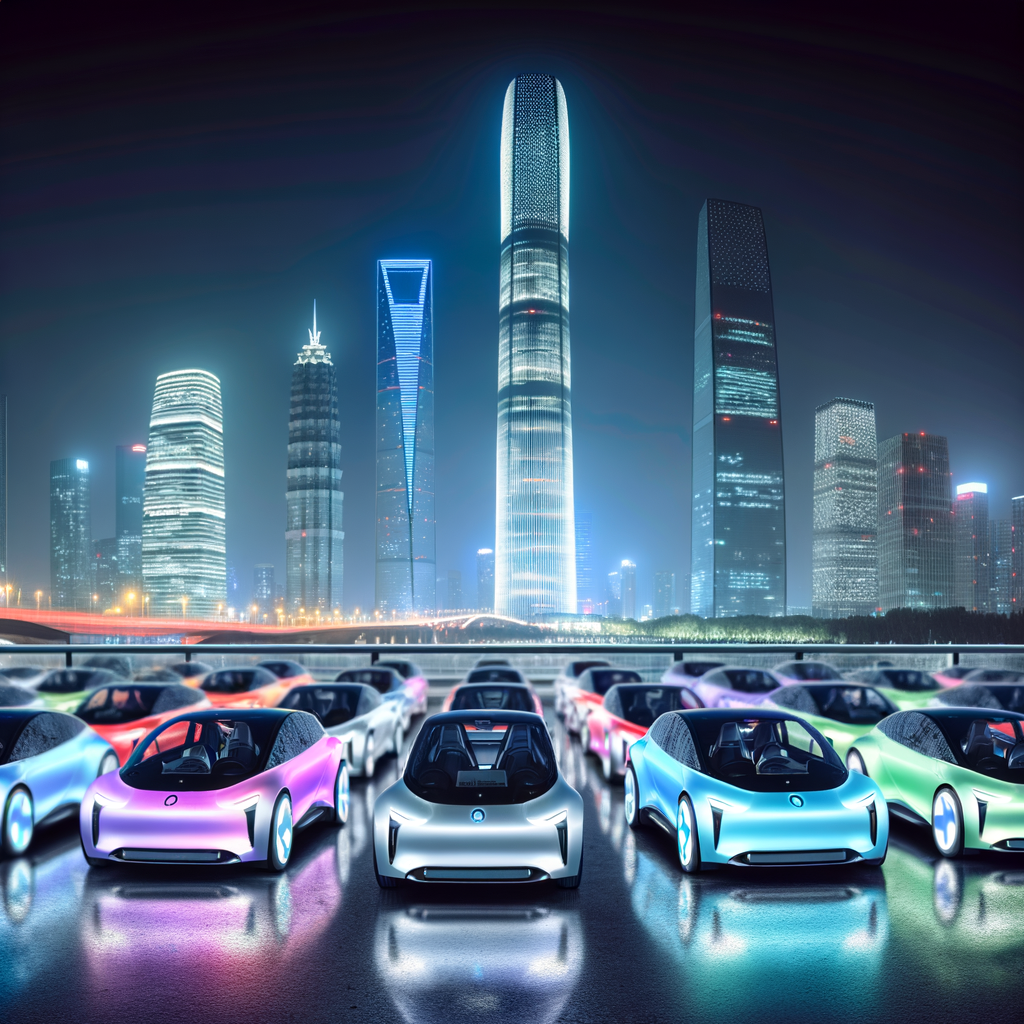
China, the top Largest Automotive Market globally, is steering towards Electric Vehicles (EVs) and New Energy Vehicles (NEVs) due to environmental concerns and strong government incentives. The shift is propelled by the nation's growing economy, rapid urbanization, and an expanding middle class with evolving consumer preferences towards green and technologically advanced vehicles. The regulatory landscape presents challenges for foreign automakers, making joint ventures with domestic car brands essential for market entry and success. Despite hurdles like fierce market competition, changing government policies, and the need for continuous technological advancements, strategic partnerships are key to navigating this competitive arena. Success hinges on understanding consumer preferences, the regulatory environment, and leveraging collaboration to address the dynamic demands of China's automotive market.
In the heart of the global automotive industry's transformation, China stands as the largest automotive market, a title it proudly holds thanks to its unparalleled growth in both production and sales. As the epicenter of this dynamic sector, China's rapidly expanding economy, the swell of its middle class, and the pace of urbanization are key drivers propelling it forward. This market is not just about sheer volume; it's about innovation and a forward-thinking approach, especially with the country's strong push towards Electric Vehicles (EVs) and New Energy Vehicles (NEVs). These segments are thriving under the dual influence of government incentives and growing environmental concerns, marking China as a pivotal player in shaping the future of mobility.
Foreign automakers eyeing this lucrative landscape find that success requires more than just entering the market; it involves navigating a complex regulatory landscape through joint ventures and strategic partnerships with local Chinese companies. These alliances are crucial for tapping into China's vast consumer base and adapting to consumer preferences that favor both domestic car brands and international names. Moreover, the emphasis on technological advancements and the competitive spirit fueled by market competition between domestic versus foreign brands make the Chinese automotive market a challenging yet rewarding arena.
This article will delve into the intricacies of the Chinese automotive sector, exploring how the emphasis on EVs and NEVs is steering the industry towards a greener future, the critical role of joint ventures and strategic alliances for foreign automakers, and the significance of understanding local consumer preferences and regulatory frameworks. We will also examine how urbanization, a growing economy, and environmental initiatives are serving as the backbone of China's auto industry's growth, alongside the innovative leaps that are setting the pace for global trends. Join us as we navigate through the bustling streets of China's automotive landscape, where the future of driving is being redefined amidst a backdrop of intense market competition and strategic maneuvering.
1. "Navigating the World's Largest Automotive Market: China's Unparalleled Growth and the Rise of Electric Vehicles"
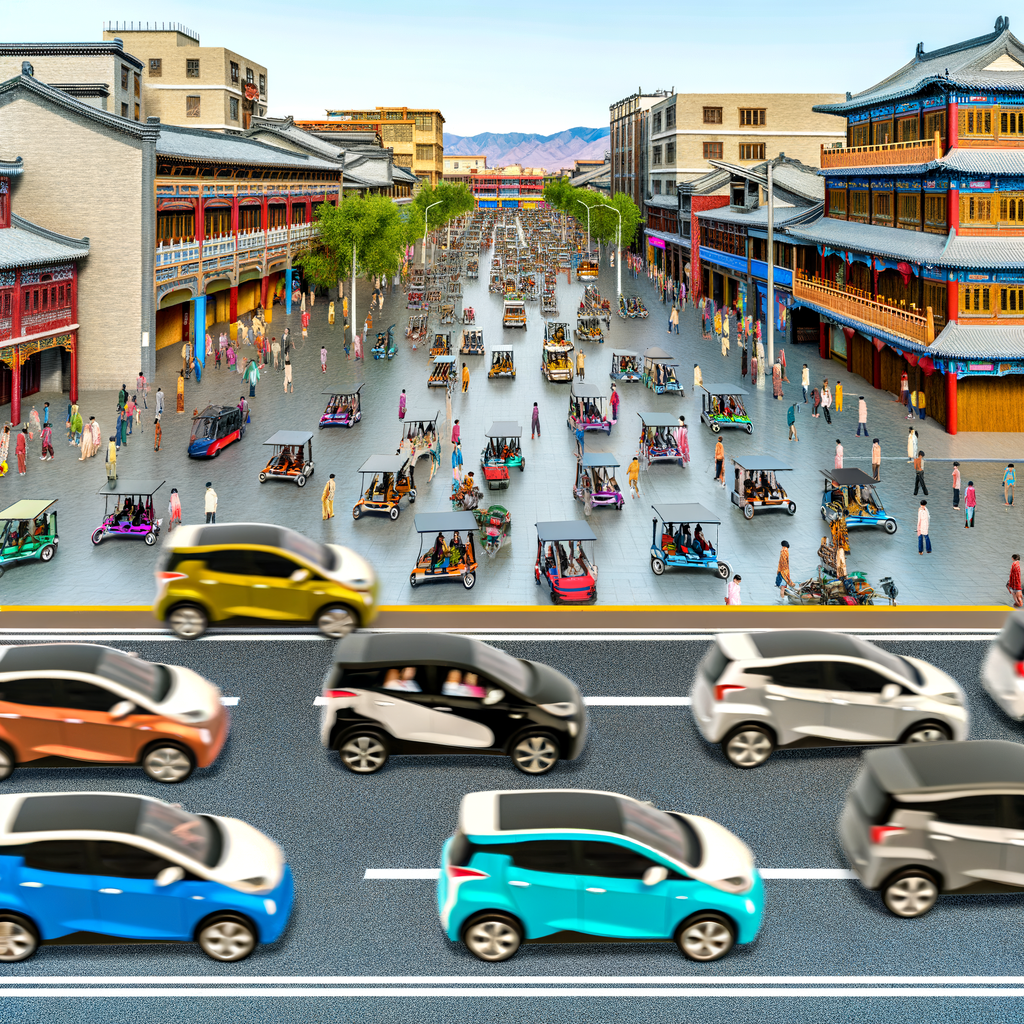
In the realm of the global automotive industry, China stands as the top contender, holding the title of the Largest Automotive Market. This prestigious position is not just in terms of sheer volume of production and sales but also in the dynamic growth and evolution it has undergone. With its growing economy fueling an expanding middle class and rapid urbanization, China's automotive market presents a complex, multifaceted landscape for both domestic car brands and foreign automakers.
A significant shift in the market has been the considerable rise of Electric Vehicles (EVs) and New Energy Vehicles (NEVs). This surge is primarily driven by environmental concerns and the Chinese government's aggressive push towards cleaner energy alternatives. Government incentives aimed at both manufacturers and consumers have played a pivotal role in the accelerated adoption of EVs and NEVs, underlining the government's commitment to reducing pollution and encouraging technological advancements in the automotive sector.
Foreign automakers looking to tap into this lucrative market face a unique set of challenges, primarily due to the intricate regulatory landscape of China. To navigate these complexities and gain access to the vast consumer base, forming joint ventures with local Chinese companies has become a strategic necessity. These partnerships allow foreign brands to circumvent certain regulatory hurdles and leverage local market knowledge and networks.
Consumer preferences in China have also played a crucial role in shaping the automotive market. The Chinese consumer's growing appetite for technologically advanced, environmentally friendly vehicles has spurred both domestic and international manufacturers to innovate and diversify their offerings. This focus on meeting specific consumer demands, coupled with the ability to adapt to the fast-paced technological advancements, is key for companies striving to secure their foothold in the market.
However, the path to success in the Chinese automotive market is not without its hurdles. Market competition is fierce, with both established players and new entrants vying for dominance. The battle for market share is intensified by changing government policies, fluctuating consumer preferences, and the continuous evolution of technological advancements.
Strategic partnerships have emerged as a critical factor for success, enabling companies to combine strengths, resources, and knowledge to better navigate the competitive landscape. These alliances are especially beneficial in the realm of EVs and NEVs, where the pace of innovation is rapid and the market potential vast.
In conclusion, the China automotive market, with its unparalleled growth and the explosive rise of electric vehicles, presents a landscape filled with opportunities and challenges. Success in this market demands a deep understanding of the regulatory landscape, consumer preferences, and the importance of strategic partnerships. For both domestic car brands and foreign automakers, the ability to adapt and innovate in response to environmental concerns, government incentives, and the fast-paced technological advancements will define their path in navigating the world's largest automotive market.
In conclusion, the journey through the world's largest automotive market unveils a landscape shaped by unrelenting growth, strategic maneuvering, and the forward march of innovation. China's position as the top destination for both domestic car brands and foreign automakers is a testament to its rapidly growing economy, expanding middle class, and the wave of urbanization sweeping across its cities. The pivot towards Electric Vehicles (EVs) and New Energy Vehicles (NEVs), driven by environmental concerns and robust government incentives, marks a significant shift in consumer preferences and positions China as a leader in the global race towards sustainable transportation.
The competitive edge in this dynamic market is carved out by those who successfully navigate the complex regulatory landscape through joint ventures, harnessing the power of strategic partnerships to tap into the vast consumer base. This approach not only aligns with the government’s vision for the automotive sector but also resonates with the increasing environmental consciousness among consumers. The emphasis on technological advancements, coupled with a deep understanding of market trends and consumer behavior, remains crucial for companies vying for supremacy in this lucrative but challenging environment.
As the China automotive market continues to evolve, influenced by global economic trends, government policies, and the push for innovation, it stands as a beacon for the future of mobility. The path forward for automakers, both domestic and international, will undoubtedly require adaptability, strategic foresight, and a commitment to meeting the demands of an increasingly sophisticated and environmentally conscious consumer base. In this realm of endless possibilities, the fusion of technology, policy, and consumer preference will continue to drive the market towards new horizons, making it an ever-important piece in the puzzle of the global automotive industry.
-
Politics10 months ago
News Articles: Artificial Intelligence (AI) Leading the Way in Politics, Industry, and Policy Internal: 0 External: 0 Total: 0 To read the complete article, click this link https://www.autonews.com/topic/politics and https://europe.auton
-

 AI6 months ago
AI6 months agoUnleash Your Creativity: Discover How DaVinci AI is Shaping the Future of Visual Design, Story Crafting, and Music Creation in 2025
-

 AI6 months ago
AI6 months agoEmpowering Justice: How AI Lawyer Transforms Access to Employment, Tenant, and Family Legal Rights
-

 Tech1 year ago
Tech1 year agoRevving Up Innovation: How Top Automotive Technology is Driving Us Towards a Sustainable and Connected Future
-

 Tech1 year ago
Tech1 year agoRevolutionizing the Road: How Top Automotive Technology Innovations are Driving Us Towards an Electric, Autonomous, and Connected Future
-

 Tech1 year ago
Tech1 year agoRevving Up the Future: How Top Automotive Technology Innovations Are Paving the Way for Electric Mobility and Self-Driving Cars
-

 Tech1 year ago
Tech1 year agoDriving into the Future: Top Automotive Technology Innovations Transforming Vehicles and Road Safety
-

 Tech1 year ago
Tech1 year agoRevving Up the Future: How Top Automotive Technology Innovations Are Paving the Way for Sustainability and Safety on the Road












































